All reports
Primary biliary cholangitis
·
Jan 17, 2025
Exploring financial assistance options for primary biliary cholangitis treatment in the U.S.
Essential resources and strategies for accessing financial support and reducing treatment costs
Reports are in beta and continually improving. They are not a substitute for professional medical advice. Please contact us to give feedback.
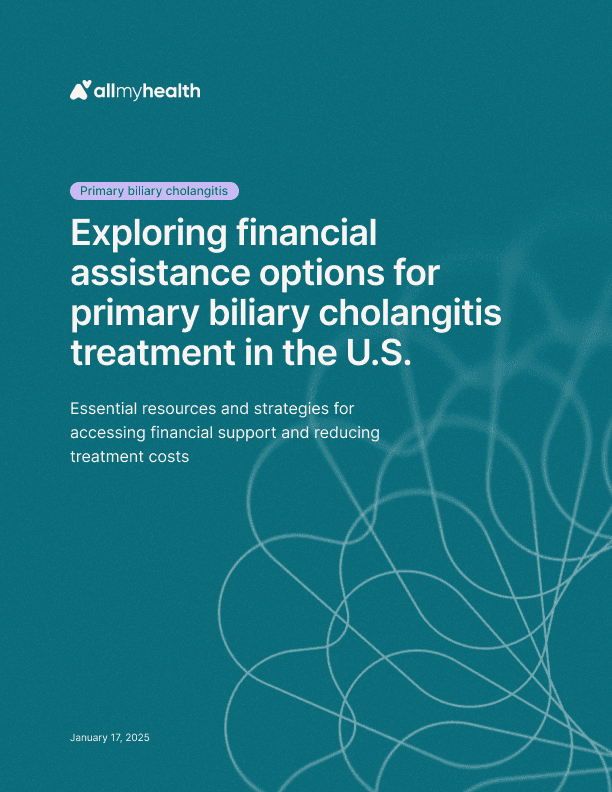
Stay informed
This report was published in our weekly newsletter and on our community page. Follow to stay up to date with the latest news and research relevant to your condition.
Introduction
Primary biliary cholangitis (PBC) is a chronic liver disease that can be challenging to manage, both physically and financially. The good news is that there are resources available to help you access the care you need, including assistance with medication costs, insurance premiums, and other medical expenses. This article will guide you through various financial assistance options, including programs offered by pharmaceutical companies, government agencies, non-profit organizations, and hospitals.
The information presented in this article was gathered through a comprehensive research process, including online searches, consultation of relevant websites (such as those of government agencies, patient advocacy organizations, and pharmaceutical companies), and review of patient resources and support materials.
Patient Advocacy Organizations
Navigating the healthcare system can be confusing [1], but you don't have to do it alone. Several organizations provide support and resources for PBC patients. Here are a few key organizations:
PBCers Organization:
This group offers online and in-person support for PBC patients, caregivers, and healthcare professionals.
They provide peer support, educational resources, and the latest information on PBC.
You can connect with other patients, find knowledgeable healthcare providers, and support ongoing research [2].
They host an annual conference that provides an opportunity for PBC patients, caregivers, and healthcare professionals to connect, learn from experts, and share experiences [2].
The PBCers Organization also maintains a Patient Registry, which allows PBC patients to share information about their condition with researchers and learn about clinical trials [2].
American Liver Foundation:
This national organization offers a wealth of information on liver diseases, including PBC.
They provide support groups, educational resources, and advocacy for patients and families [5].
They also have a patient forum, ALF Inspire, which provides a platform for patients and caregivers to connect, share experiences, and ask questions [7].
The Community Liver Alliance:
This organization supports the liver community through awareness campaigns, prevention programs, education, advocacy, and research.
They offer online support groups and a national support helpline to connect you with resources and clinical trials in your area [5].
Canadian PBC Society:
While based in Canada, this organization offers resources and support that may be helpful to PBC patients in the US.
They have regional groups that provide support and encouragement, education, and information, and they also fundraise for research on PBC [7]. You can find more information on their website: pbc-society.ca.
Pharmaceutical Company Assistance Programs
Many pharmaceutical companies that manufacture PBC treatments offer financial assistance programs to help patients access their medications [12]. Here are a few examples:
Intercept Pharmaceuticals:
Intercept offers the Interconnect® patient support program, which provides disease education, treatment guidance, and financial assistance options [7].
Gilead:
Gilead's Support Path® program offers co-pay coupon programs for commercially insured patients and a patient assistance program for those who lack insurance coverage or are underinsured [12]. They also have an interim support program for patients with insurance delays or interruptions in coverage.
To find out if the pharmaceutical company that manufactures your medication offers a financial assistance program, visit their website or contact their customer service department [14].
Government Programs
Several government programs offer financial assistance for medical treatment, which may help cover the costs of PBC care. These include:
Medicare:
A federal health insurance program for people over 65 and some younger people with disabilities [1]. Medicare has different parts that cover various aspects of medical care:
Part A covers inpatient hospital stays, care in a skilled nursing facility, hospice care, and some home health care.
Part B covers certain doctors' services, outpatient care, medical supplies, and preventive services.
Part C (also known as Medicare Advantage) offers an alternative way to get your Medicare benefits through private insurance companies.
Part D helps cover the cost of prescription drugs.
Medicaid:
A joint federal and state program that provides health coverage to low-income individuals and families [1].
Medicaid waivers are state-run programs that use federal and state funds to pay for health care for people with certain health conditions [16].
In some states, families can apply for a Medicaid waiver that waives the family income requirement and looks only at the disabled person's income.
Children's Health Insurance Program (CHIP):
Provides low-cost health coverage to children in families who earn too much money to qualify for Medicaid but cannot afford private insurance [1].
You can explore these programs and their eligibility requirements on the official government benefits website (benefits.gov) [16] or by contacting your state's Health Department. State social services agencies can also provide direct assistance to people with limited access to health care and can offer referrals to local resources [14]. The National Institutes of Health (NIH) also provides financial support in the form of grants for various research-related activities [17]. You can contact 211, a 24/7 service that connects people with local assistance, including health care and insurance assistance [18].
Rare Disease Assistance Programs
The National Organization for Rare Disorders (NORD) offers a rare disease assistance program called RareCare® [19]. NORD is a leading independent non-profit organization dedicated to supporting individuals and families affected by rare diseases. RareCare® provides various forms of financial assistance to help patients with rare diseases access necessary care and treatment.
Medication Assistance
Helps cover the cost of prescription medications.
Eligibility: Varies depending on the specific medication and program.
Insurance Premium Assistance
Helps pay for health insurance premiums.
Eligibility: Varies depending on the specific program and the patient's income and resources.
Co-pay Assistance
Helps cover the cost of co-pays for medical services.
Eligibility: Varies depending on the specific program and the patient's insurance plan.
Diagnostic Testing Assistance
Helps cover the cost of diagnostic testing for rare diseases.
Eligibility: Varies depending on the specific program and the type of testing needed.
Travel Assistance
Helps cover the cost of travel for clinical trials or consultations with specialists.
Eligibility: Varies depending on the specific program and the distance traveled.
For any of the above, contact NORD or visit their website https://rarediseases.org/contact/ for more information.
Hospital Financial Assistance Programs
Many hospitals offer financial assistance programs, sometimes called "charity care," to help patients manage their medical expenses [20]. Nonprofit hospitals are required by law to offer these programs, and many for-profit hospitals also have similar programs. These programs may reduce or eliminate medical bills for patients who qualify.
Some states have charity care laws that require hospitals to provide free or discounted care to patients meeting certain requirements, often based on income [21]. Some of the states that offer these protections include California, Connecticut, Illinois, Maine, Maryland, Nevada, New Jersey, New York, Rhode Island, and Washington.
The Affordable Care Act (ACA) requires hospitals to have a written Financial Assistance Policy (FAP) and a written Emergency Medical Care policy [21]. These policies outline the hospital's financial assistance programs and eligibility requirements.
To find out about financial assistance programs offered by a specific hospital, contact the billing department of the hospital or medical facility where you receive treatment.
Tips for Saving on Medications
In addition to financial assistance programs, there are other ways to save money on your PBC medications:
Ask for generic versions:
Whenever possible, ask your doctor if there is a generic version of your medication available [18]. Generic drugs are just as effective as brand-name drugs but often significantly cheaper.
Contact pharmaceutical companies:
Contact the pharmaceutical companies that manufacture your medications to inquire about potential cost-saving options [14]. Some companies may offer patient assistance programs, discounts, or free samples to eligible patients.
Additional Support for Insured Individuals
If you already receive coverage from Medicaid, Medicare, ACA Marketplace, or other insurance, additional programs may provide further support [14]:
Medicare Savings Programs:
There are four Medicare Savings Programs that may be able to help with Part A and Part B premiums, deductibles, coinsurance, and copayments.
Medicare Extra Help:
This program can help you pay Medicare Part D costs that cover prescription drugs.
Independent Foundations and Charities
In addition to government programs, numerous independent foundations and charities offer financial assistance for medical treatment, including PBC. Here are a few notable organizations:
The Assistance Fund:
This independent charitable patient assistance organization helps patients with high medical out-of-pocket costs [22].
They offer financial support for copays, health insurance premiums, and incidental medical expenses related to FDA-approved prescription medications.
Patient Access Network (PAN) Foundation:
PAN provides financial assistance to underinsured patients with life-threatening, chronic, and rare diseases [1].
They help cover out-of-pocket costs for prescription medications, including those for PBC.
They also offer a web-based app called FundFinder, designed to quickly notify registered users when financial assistance for their condition becomes available from any of the charitable patient assistance foundations [15].
HealthWell Foundation:
This non-profit organization helps underinsured patients access care by assisting with copays, premiums, deductibles, and out-of-pocket expenses [1].
Leukemia & Lymphoma Society (LLS):
While primarily focused on blood cancers, the LLS offers resources that may be helpful to PBC patients facing financial challenges [28].
Their Patient Aid Program provides a one-time $100 stipend to eligible blood cancer patients to help offset non-medical expenses.
They also have a Medical Debt Case Management Program that may be helpful to PBC patients struggling with medical debt.
Patient Advocate Foundation:
This organization has an independent division that provides small grants to patients who meet financial and medical criteria [29].Grants are provided on a first-come, first-served basis until funds are depleted.
These are just a few examples, and many other foundations may offer assistance for PBC patients. Other organizations that may be able to help include Accessia Health, CancerCare, and Good Days [25]. You can use online resources like the PAN Foundation's website to find a comprehensive list of patient assistance organizations [25].
Online Resources for Medical Billing and Insurance
Navigating medical billing and insurance can be complex. It's important to understand your insurance policy and what it covers in advance of any illness or injury [30]. Fortunately, several online resources can help you understand your coverage and manage your medical expenses:
Understanding Your Policy:
Your insurance company's website: Most insurance companies have online portals where you can access your policy information, claims status, and find answers to frequently asked questions [31].
Healthcare.gov: This website provides information about health insurance options, including government programs and the Health Insurance Marketplace [36].
Finding Providers and Managing Bills:
Online provider directories: These directories can help you find healthcare providers within your insurance network [32].
Centers for Medicare & Medicaid Services (CMS): The CMS website offers resources and guides on understanding your medical bills, applying for financial assistance, and appealing health plan decisions [34].
Medical billing clearinghouse: A medical billing clearinghouse, like Claim.MD, allows you to electronically submit claims to insurance companies [36]. They can also help verify client eligibility, check claims for errors, and speed up efficiency.
Insurance billing solutions: Software solutions can help you check your eligibility for services, determine if pre-approval is needed from the insurer, and manage your medical bills [36].
Common Health Insurance Terms:
Here's a brief glossary of common health insurance terms:
Premium: The amount you pay for your health insurance every month.
Deductible: The amount you pay for covered health care services before your insurance plan starts to pay.
Copay: A fixed amount you pay for a covered health care service, usually when you get the service.
Coinsurance: Your share of the costs of a covered health care service, calculated as a percentage (for example, 20%).
Out-of-pocket maximum: The most you pay during a policy period (usually a year) before your health insurance plan begins to pay 100% of the allowed amount for covered health care services.
Support Groups for PBC Patients
Connecting with other PBC patients can provide emotional support and valuable information about financial assistance. Support groups can provide a sense of community, reduce feelings of isolation, and offer valuable peer support. Here are some support groups where you can share experiences and advice:
PBCers Organization: This organization offers online and in-person support groups for PBC patients [2]. In these groups, members discuss medical information, pain management, medications, research, transplantation, and the emotional challenges of living with PBC [4]. You can contact the PBCers Organization at pbcers@pbcers.org or visit their website at PBCers.org.
Community Liver Alliance: They offer online support groups specifically for PBC patients [37]. Their PBC Patient Support Group is an online gathering of patients who discuss how to manage their symptoms, lifestyles, and support one another. A healthcare provider moderates the group and can offer guidance.
American Liver Foundation: They have a Facebook group dedicated to people living with PBC called "Life with PBC" [7]. They also have a general patient forum, ALF Inspire [7].
PBC Foundation: This global patient organization provides online support to people with PBC and their families and friends [7]. You can contact the PBC Foundation at info@pbcfoundation.org.uk or visit their website at pbcfoundation.org.uk.
Tips for Seeking Financial Assistance
Be proactive: Don't wait until you're in a financial crisis to start seeking assistance. Start exploring your options as soon as you are diagnosed with PBC.
Be persistent: Navigating the healthcare system can be challenging, but don't give up. If you are denied assistance from one program, try another.
Keep organized records: Keep track of all your medical expenses, insurance information, and applications for financial assistance.
Ask for help: Don't be afraid to ask for help from your doctor, a social worker, or a patient advocate. They can help you navigate the system and find the resources you need.
Connect with other patients: Talk to other PBC patients about their experiences with seeking financial assistance. They may have valuable insights and advice to share.
Conclusion
Managing the financial burden of PBC treatment can be overwhelming, but remember that you are not alone. Many resources are available to help you access the care you need, including financial assistance programs offered by pharmaceutical companies, government agencies, non-profit organizations, and hospitals. By exploring the options outlined in this article and connecting with patient advocacy organizations and support groups, you can find the financial assistance you need to access quality care and improve your quality of life.
Remember to be proactive and persistent in seeking financial assistance. Navigating the healthcare system can be challenging, but it's important to advocate for yourself and explore all available options. Contact multiple organizations and programs to find the best fit for your needs.
Connecting with other PBC patients through support groups can provide emotional support, reduce feelings of isolation, and offer valuable peer support. Don't hesitate to reach out to others who understand what you're going through.
Living with PBC can present various challenges, but with the right support and resources, you can manage your condition and live a full and meaningful life.
References
1. 9 Government Programs and Nonprofits That Can Help with Medical Bills, https://www.asbestos.com/treatment/expenses/government-nonprofit-financial-assistance/
2. PBCers Organization – Welcome to our community, https://pbcers.org/
3. About Us - PBCers Organization, https://pbcers.org/about-us/
4. Primary Biliary Cholangitis Organization - National Organization for Rare Disorders, https://rarediseases.org/organizations/primary-biliary-cholangitis-organization/
5. Primary Biliary Cholangitis (PBC) Resources - MoreThanPBC, https://www.morethanpbc.com/resources
6. Primary Biliary Cholangitis - American Liver Foundation, https://liverfoundation.org/resource-center/videos/primary-biliary-cholangitis/
7. Patient Resources - Intercept Pharmaceuticals, https://www.interceptpharma.com/our-focus/patient-resources/
8. Management of Primary Biliary Cholangitis: Current Treatment and Future Perspectives, https://pmc.ncbi.nlm.nih.gov/articles/PMC10081121/
9. Primary biliary cholangitis (primary biliary cirrhosis) - Treatment - NHS, https://www.nhs.uk/conditions/primary-biliary-cholangitis-pbc/treatment/
10. Primary biliary cholangitis - Diagnosis and treatment - Mayo Clinic, https://www.mayoclinic.org/diseases-conditions/primary-biliary-cholangitis/diagnosis-treatment/drc-20376880
11. Primary Biliary Cholangitis | PBC Treatment - UChicago Medicine, https://www.uchicagomedicine.org/conditions-services/liver-diseases-hepatology/primary-biliary-cholangitis-pbc
12. FOR PRIMARY BILIARY CHOLANGITIS (PBC) - Support Path is here to help your patients., https://www.mysupportpath.com/-/media/project/mysupportpath/pdf/support_path_hcp_brochure_pbc.pdf
13. Support Path | MySupportPath.com | 1-855-769-7284, https://www.mysupportpath.com/-/media/project/mysupportpath/pdf/support_path_patient_brochure_pbc.pdf
14. How to get help with medical bills | USAGov, https://www.usa.gov/help-with-medical-bills
15. Financial Assistance Programs | American Lung Association, https://www.lung.org/help-support/financial-assistance-programs
16. Financial Aid for Medical Treatment - National Human Genome Research Institute, https://www.genome.gov/Genetic-and-Rare-Diseases-Information-Center/Financial-aid-medical-treatment
17. U.S. Department of Health and Human Services (HHS) - Grants.gov, https://www.grants.gov/learn-grants/grant-making-agencies/u-s-department-of-health-and-human-services-hhs
18. How to get Assistance with Medical Bills | United Way 211, https://www.211.org/about-usblog/how-get-assistance-medical-bills
19. RareCare® Patient Assistance Programs - National Organization for Rare Disorders, https://rarediseases.org/patient-assistance-programs/
20. Dollar For: Get Relief from Hospital Bills, https://dollarfor.org/
21. Is there financial help for my medical bills?, https://www.consumerfinance.gov/ask-cfpb/is-there-financial-help-for-my-medical-bills-en-2124/
22. Financial Assistance Program Offers Aid to Patients with Primary Biliary Cholangitis, https://tafcares.org/newsroom/press-releases/the-assistance-fund-financial-assistance-program-offers-aid-to-patients-with-primary-bilary-choloangitis/
23. The Assistance Fund - TAF, https://tafcares.org/
24. Primary Biliary Cholangitis - PAN Foundation, https://www.panfoundation.org/disease-funds/primary-biliary-cholangitis/
25. What are charitable patient assistance foundations?, https://www.panfoundation.org/resources/patient-assistance-organizations/
26. Independent Patient Assistance Program Foundations - Lilly Oncology Support Center, https://oncologysupport.lilly.com/assets/pdf/foundations-list.pdf
27. What We Do - HealthWell Foundation, https://www.healthwellfoundation.org/about/what-we-do/
28. Financial Support | Leukemia and Lymphoma Society, https://www.lls.org/support-resources/financial-support
29. Financial Aid Funds - Patient Advocate Foundation, https://www.patientadvocate.org/connect-with-services/financial-aid-funds/
30. Understanding & Navigating Your Insurance Policy: A guide to managing your health care benefits - Student Health Care Center - University of Florida, https://shcc.ufl.edu/fees-and-insurance/understanding-your-insurance/
31. Insurances and Web Portals - Infinite Medical Billing, http://www.infinitebilling.com/news-resources/insurances-web-portals/
32. Demystifying Health Insurance Network Navigation | Decent, https://www.decent.com/blog/demystifying-health-insurance-network-navigation
33. Get help applying for health insurance | HealthCare.gov, https://www.healthcare.gov/apply-and-enroll/get-help-applying/
34. Medical bill guides and resources - CMS, https://www.cms.gov/medical-bill-rights/help/guides
35. Navigate Your Coverage - CMS, https://www.cms.gov/priorities/health-equity/c2c/navigate-your-coverage
36. The Ultimate Guide to Billing Insurance: Updated for 2025 | Practice Better, https://practicebetter.io/blog/the-ultimate-guide-to-billing-insurance-in-2025
37. PBC Support Group - Community Liver Alliance, https://communityliveralliance.org/event/pbc-support-group-3/
38. PBC Foundation | Support for those with Primary Biliary Cholangitis, https://www.pbcfoundation.org.uk/

Gaucher disease
·
Inclusion of Gaucher disease in newborn screening panels across the U.S.
Apr 9, 2025

Hemophilia
·
Qfitlia: A breakthrough in hemophilia treatment
Apr 3, 2025

Multiple myeloma
·
Navigating clinical trials in multiple myeloma
Apr 2, 2025

Gene and cell therapy
·
An introduction to cell therapy
Mar 25, 2025

Gene and cell therapy
·
An introduction to gene therapy
Mar 19, 2025
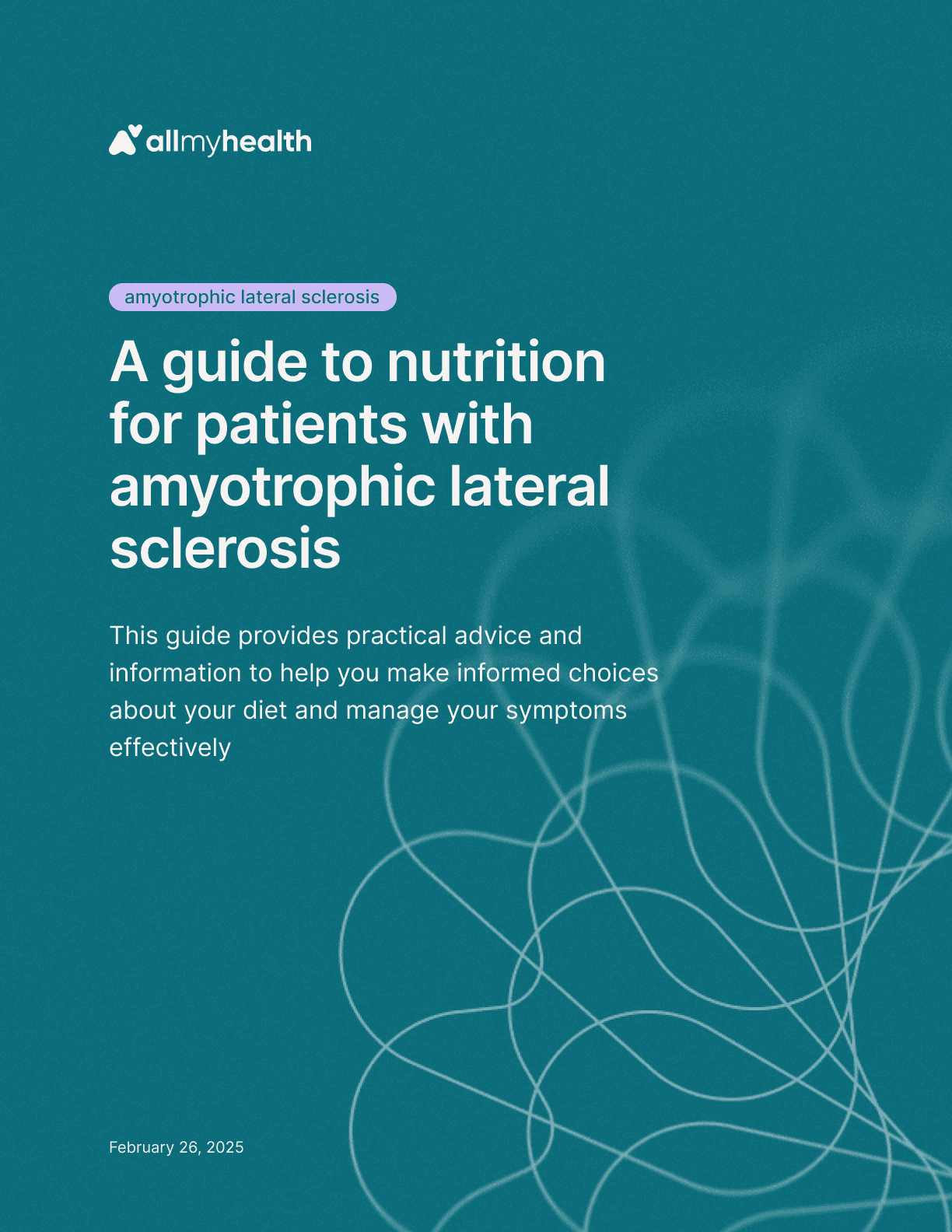
Amyotrophic lateral sclerosis
·
A guide to nutrition for patients with amyotrophic lateral sclerosis
Feb 26, 2025
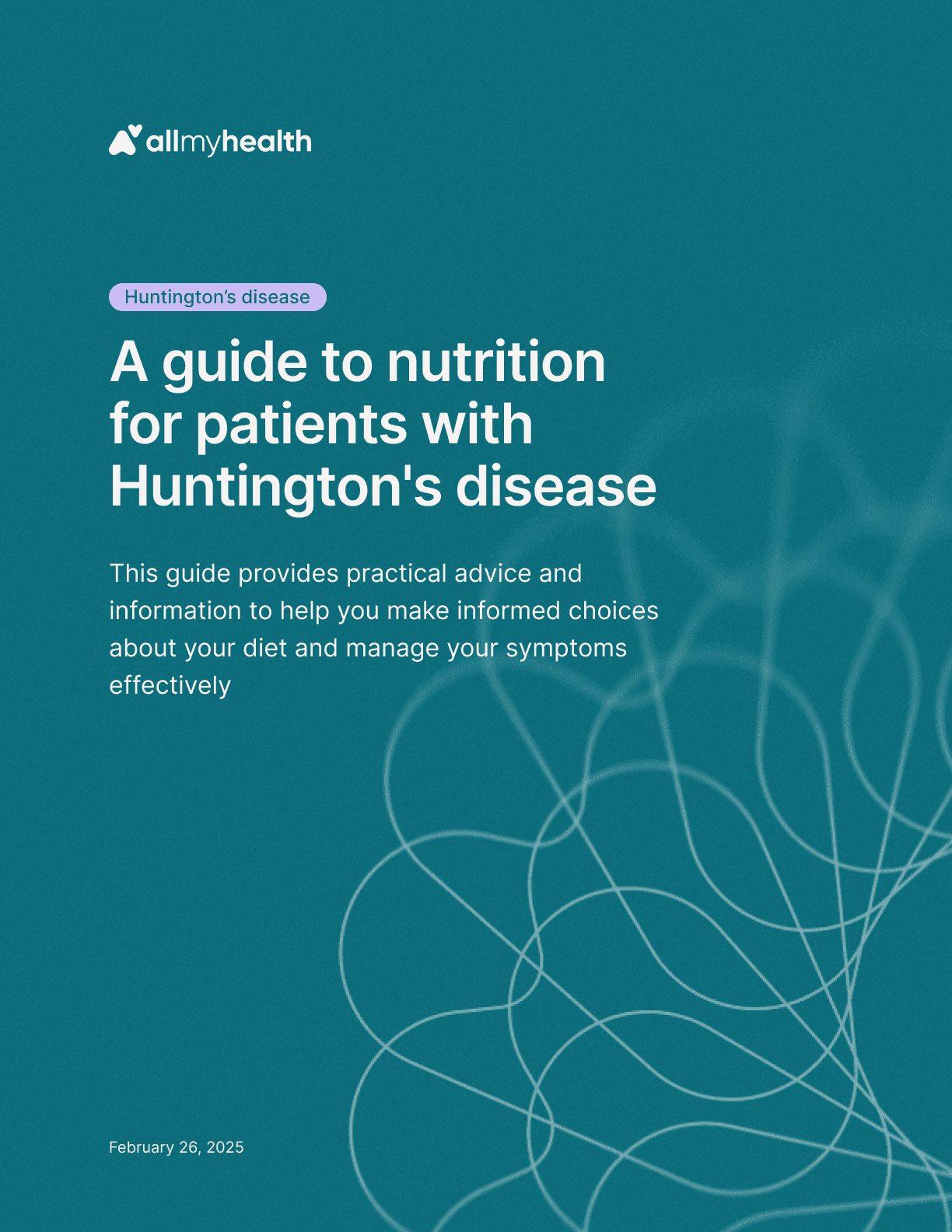
Huntington's disease
·
A guide to nutrition for patients with Huntington's disease
Feb 26, 2025

Spinal muscular atrophy
·
A guide to nutrition for patients with spinal muscular atrophy
Feb 26, 2025
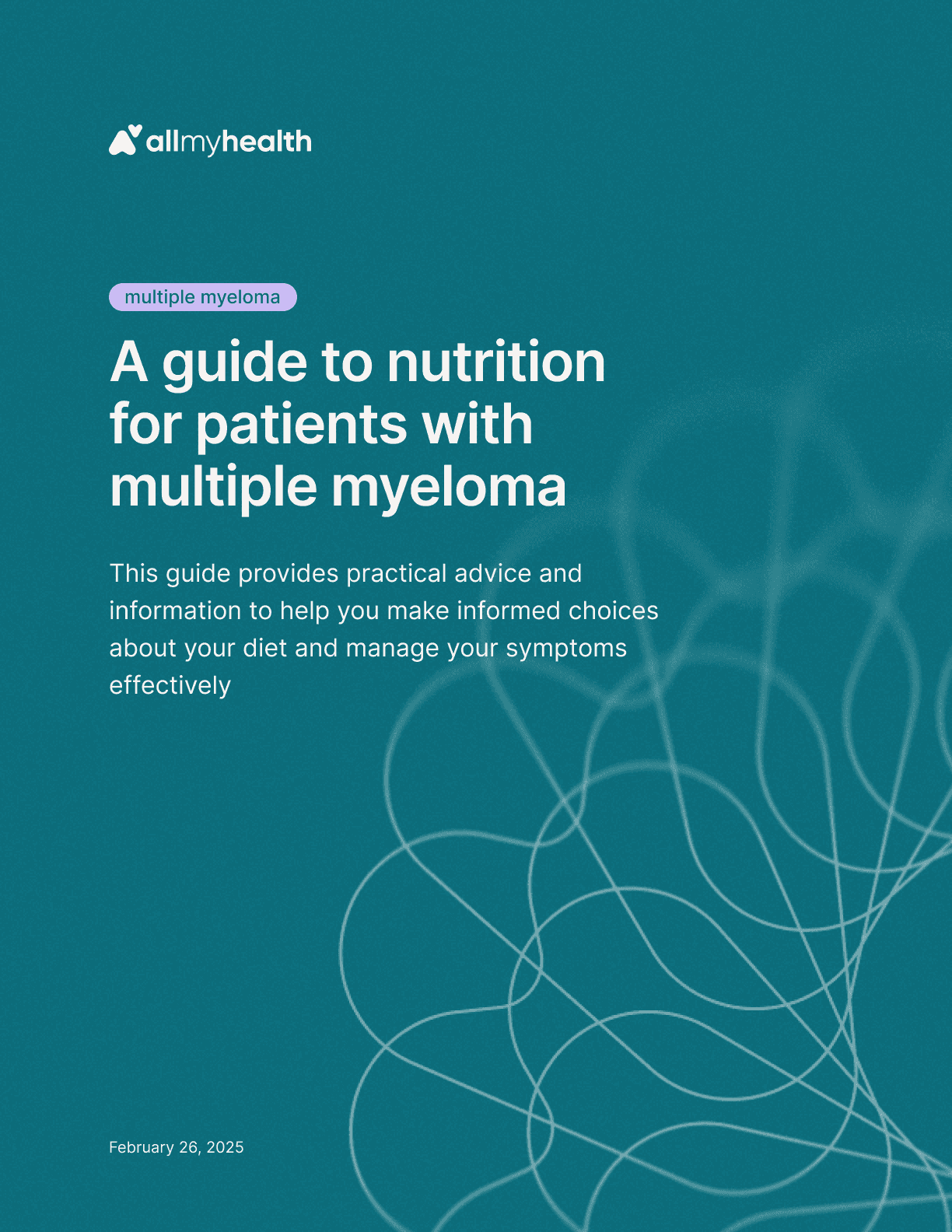
Multiple myeloma
·
A guide to nutrition for patients with multiple myeloma
Feb 26, 2025
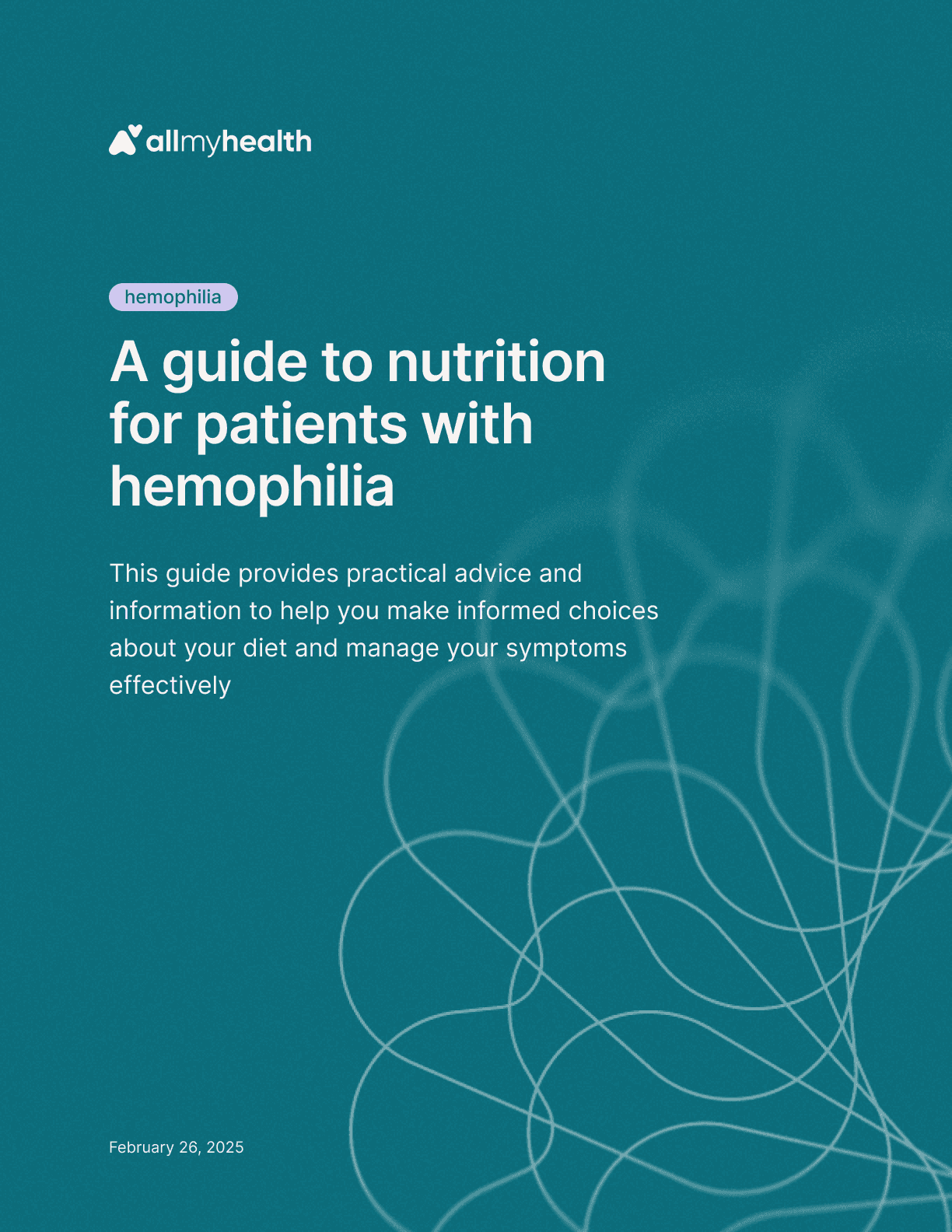
Hemophilia
·
A guide to nutrition for patients with hemophilia
Feb 26, 2025
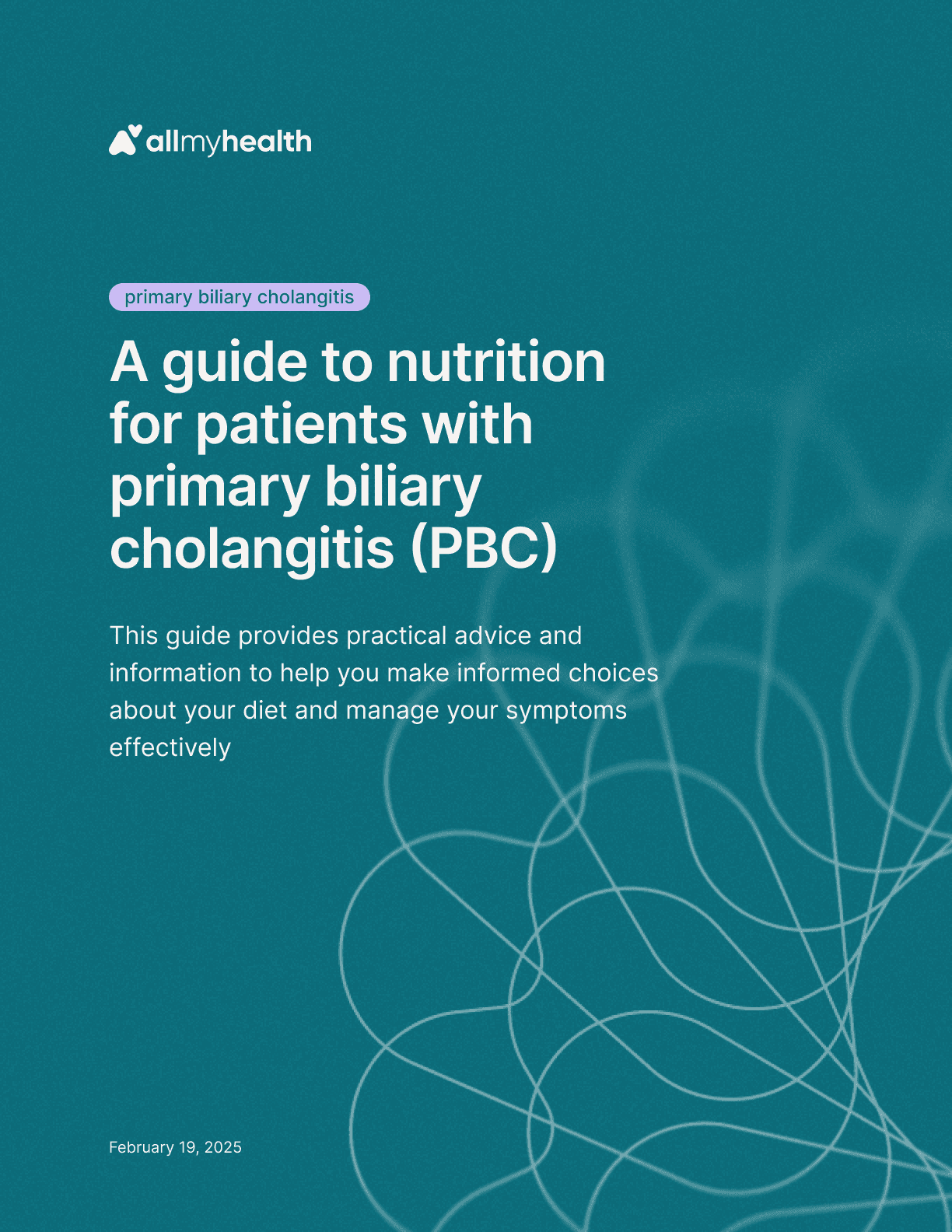
Primary biliary cholangitis
·
A guide to nutrition for patients with primary biliary cholangitis (PBC)
Feb 19, 2025
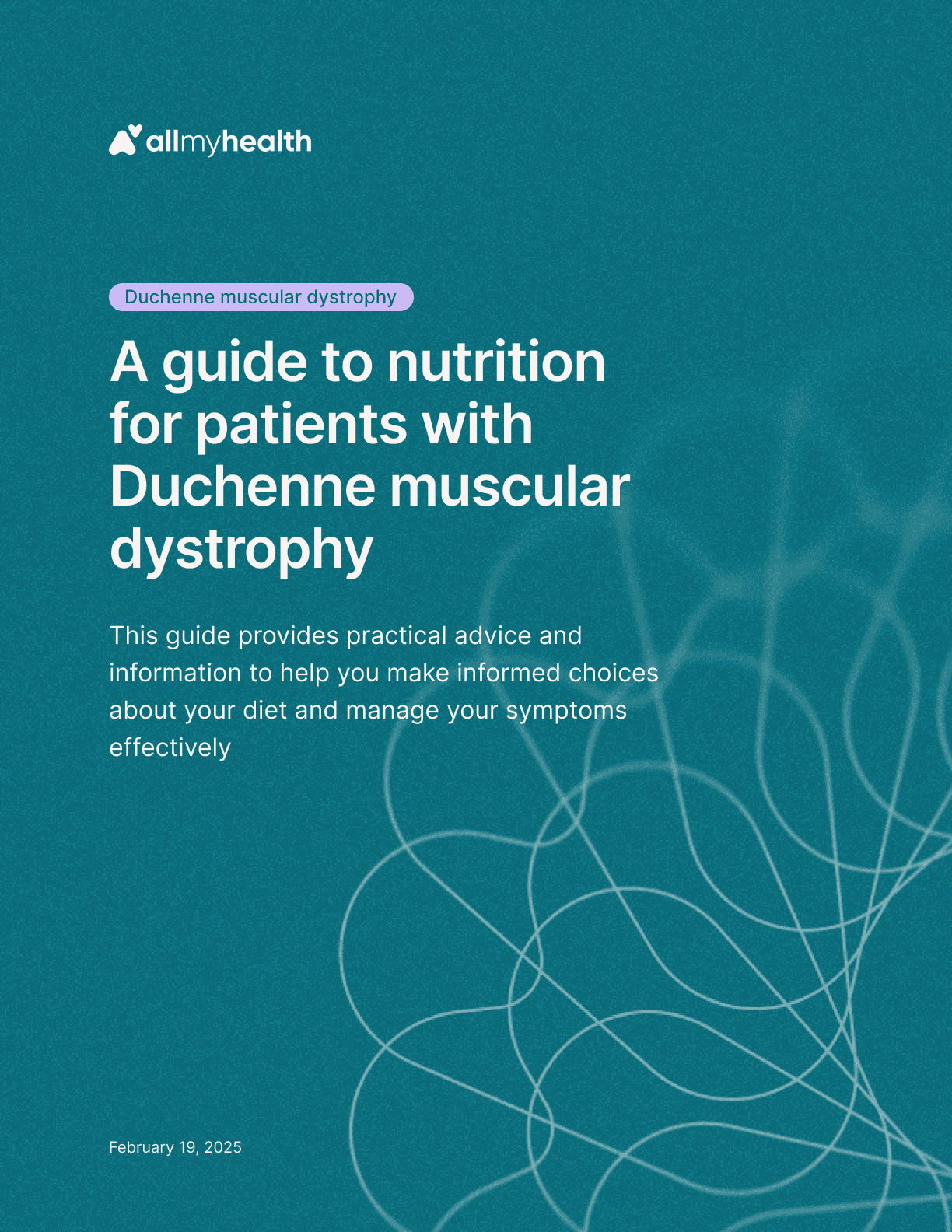
Duchenne muscular dystrophy
·
A guide to nutrition for patients with Duchenne muscular dystrophy
Feb 19, 2025
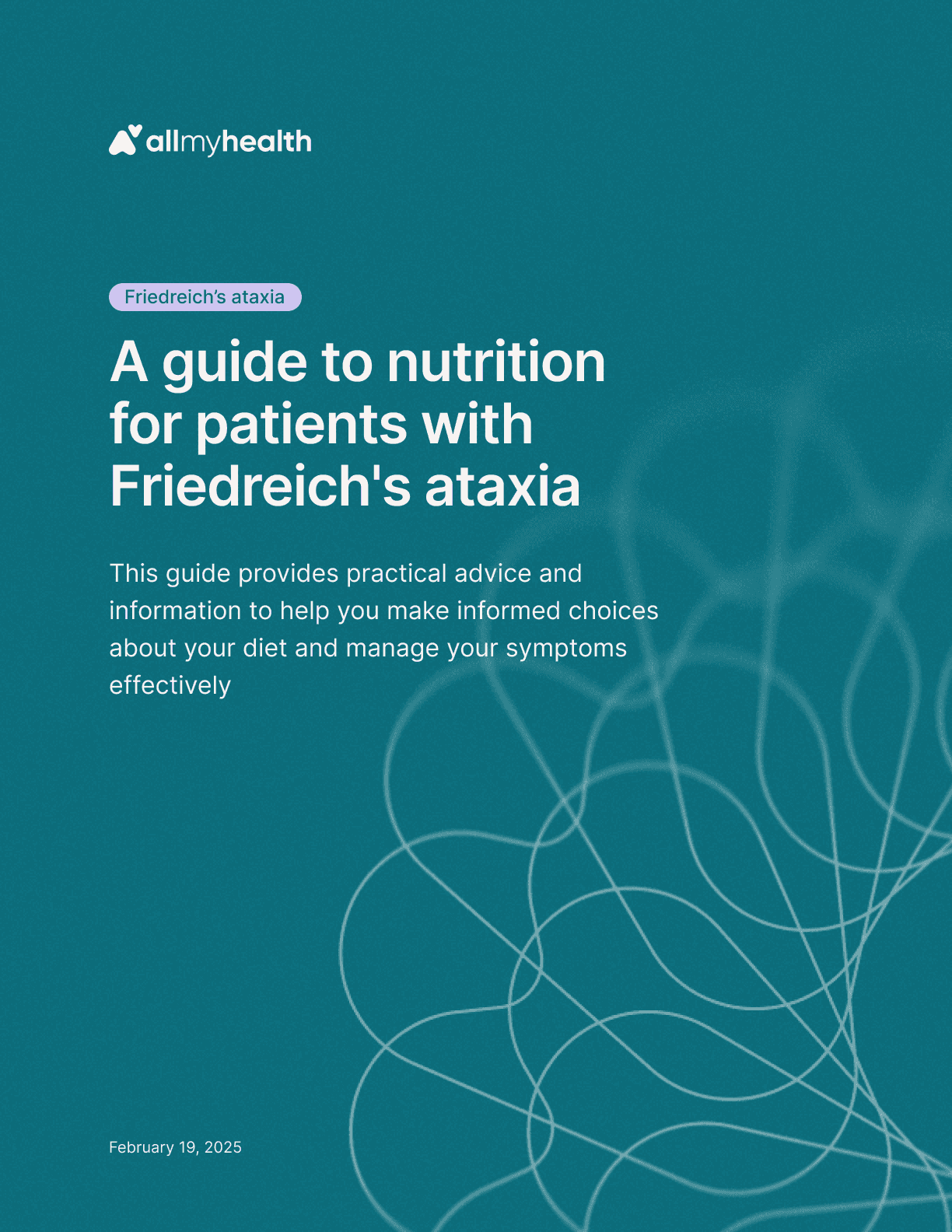
Friedreich's ataxia
·
A guide to nutrition for patients with Friedreich's ataxia
Feb 19, 2025
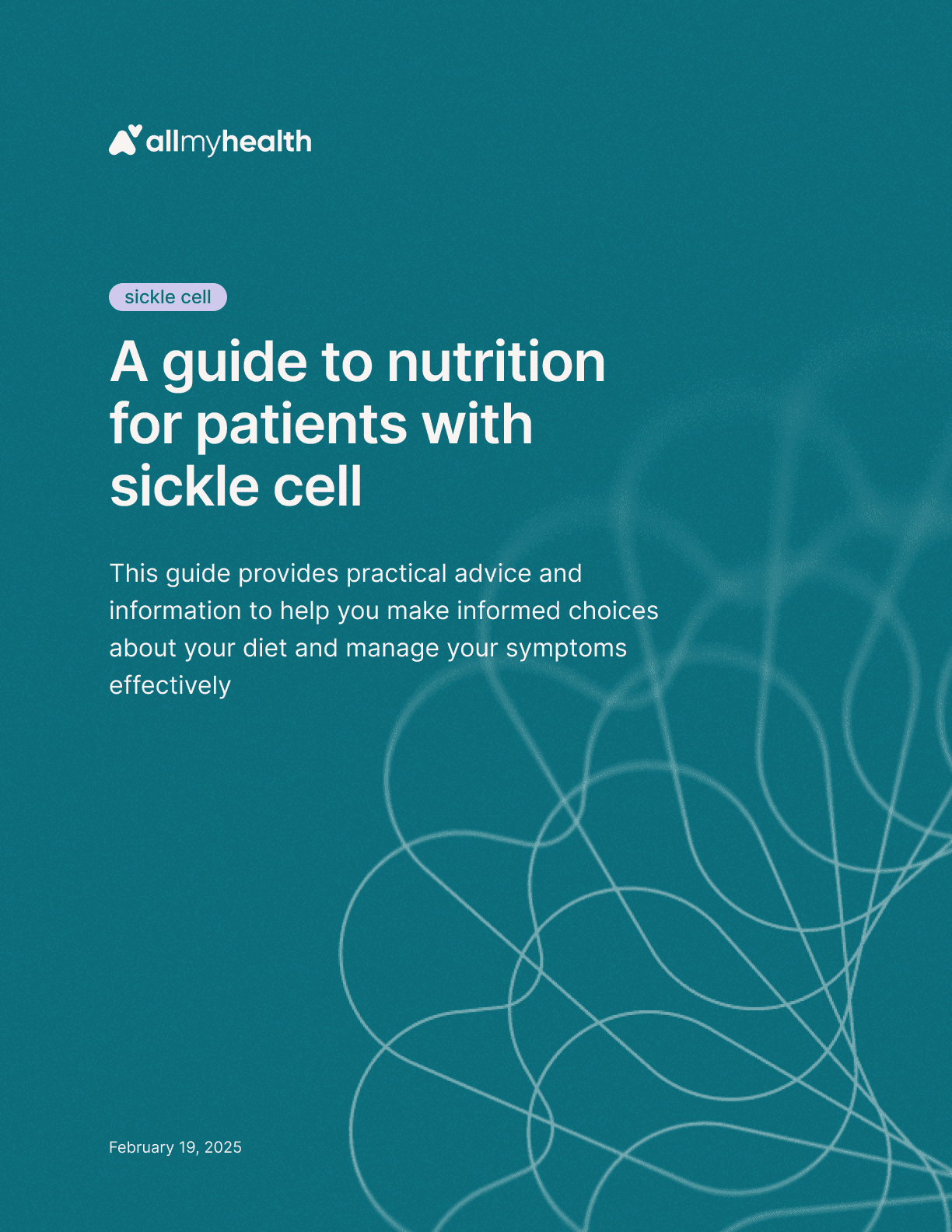
Sickle cell
·
A guide to nutrition for patients with sickle cell
Feb 19, 2025

Mantle cell lymphoma
·
A guide to nutrition for patients with mantle cell lymphoma
Feb 19, 2025
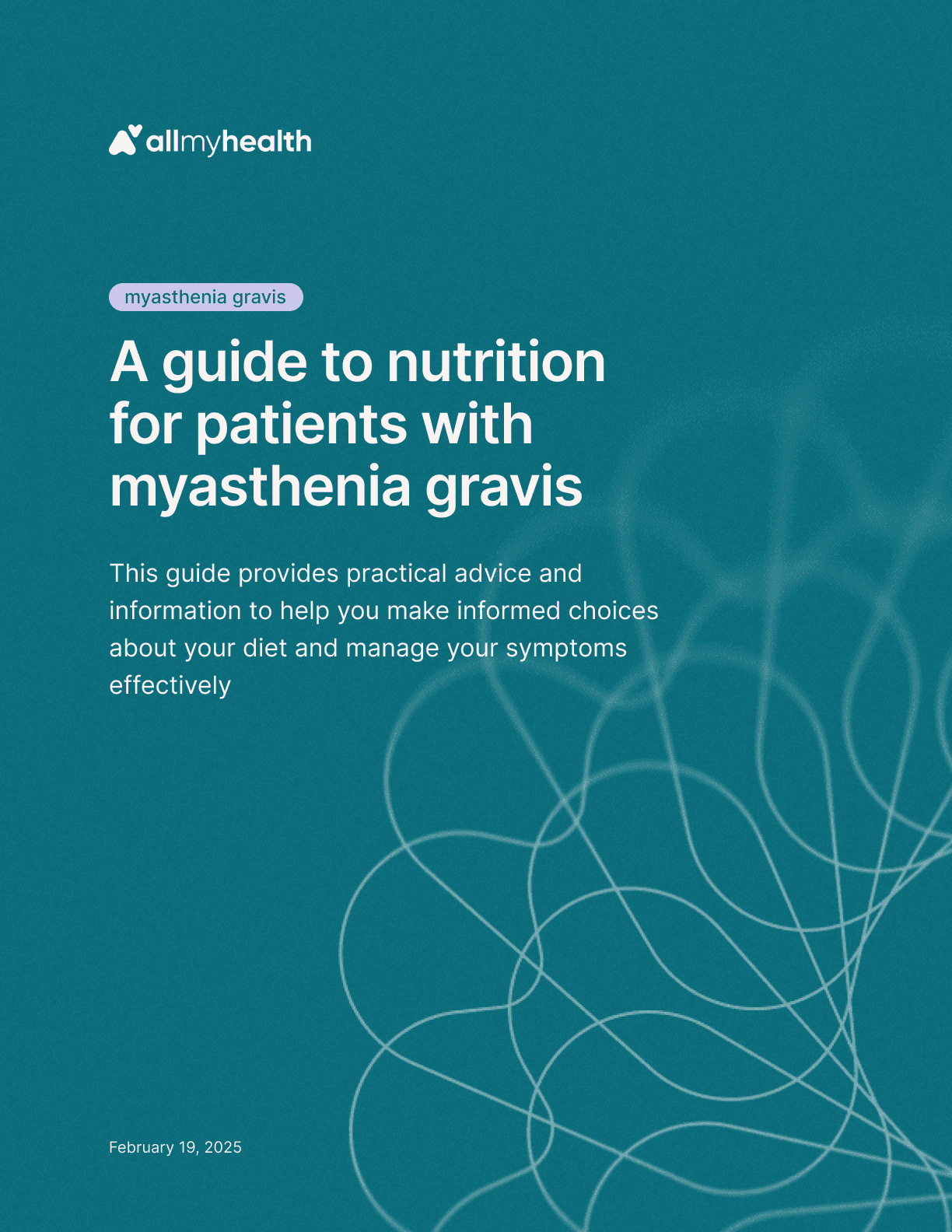
Myasthenia gravis
·
A guide to nutrition for patients with myasthenia gravis
Feb 19, 2025
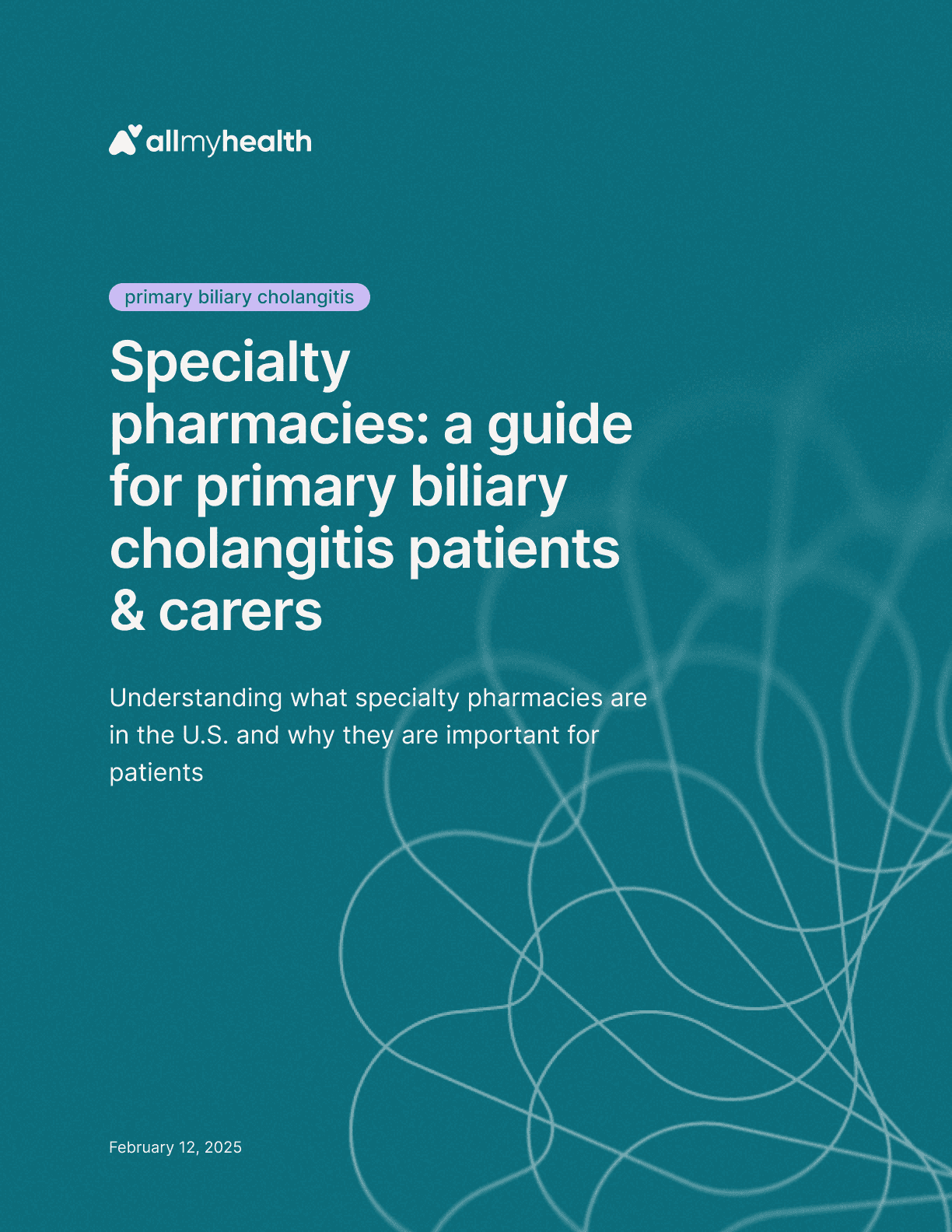
Primary biliary cholangitis
·
Specialty pharmacies: a guide for primary biliary cholangitis patients & carers
Feb 12, 2025
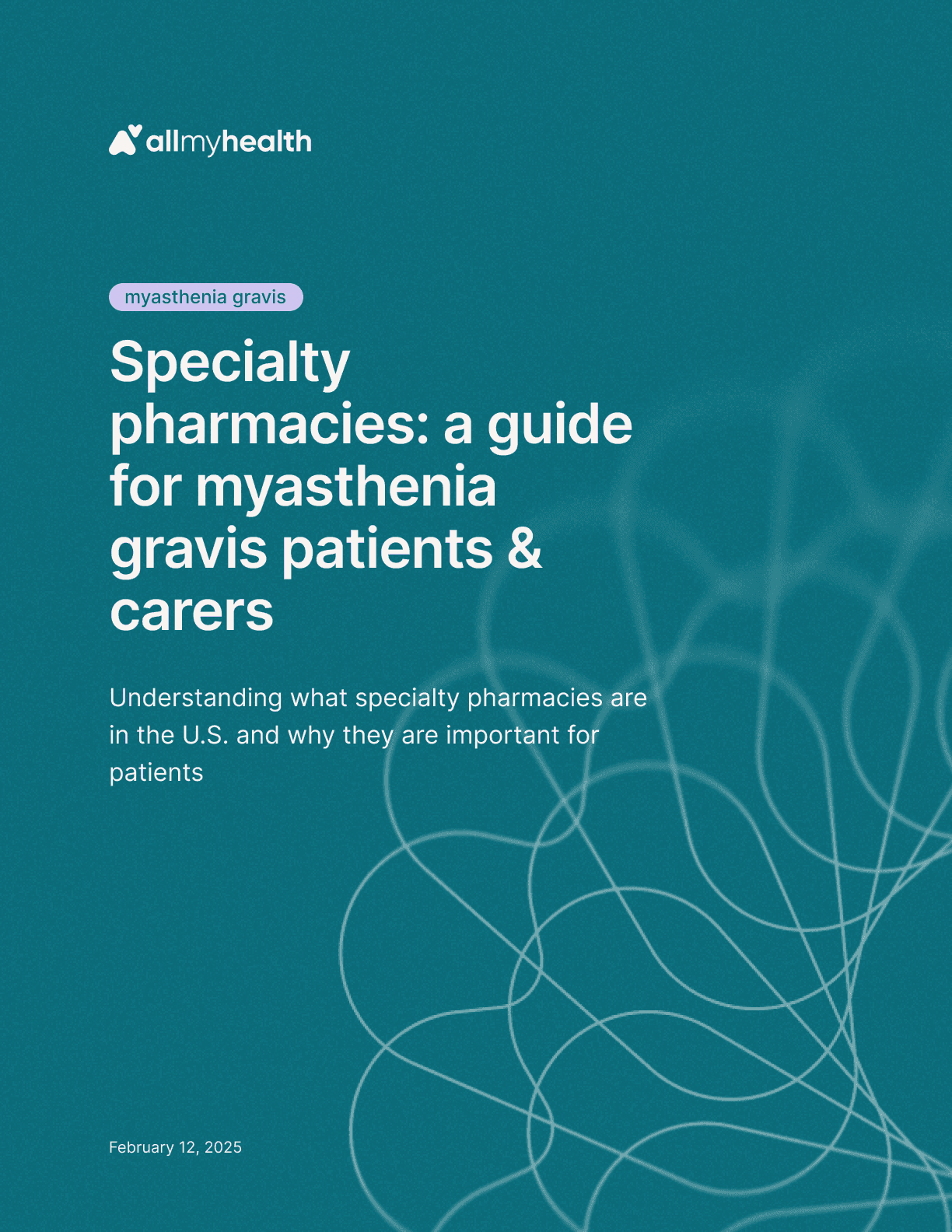
Myasthenia gravis
·
Specialty pharmacies: a guide for myasthenia gravis patients & carers
Feb 12, 2025
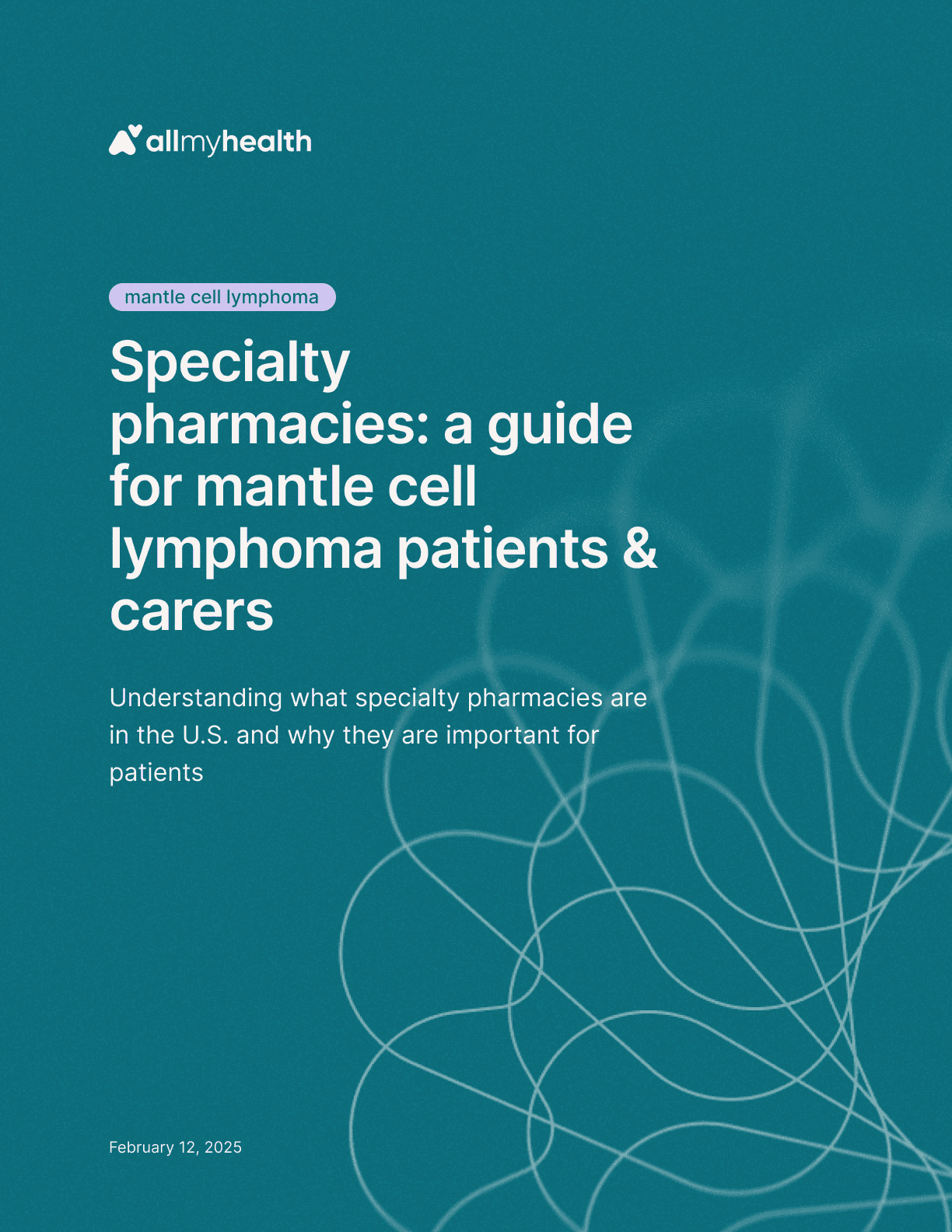
Mantle cell lymphoma
·
Specialty pharmacies: a guide for mantle cell lymphoma patients & carers
Feb 12, 2025
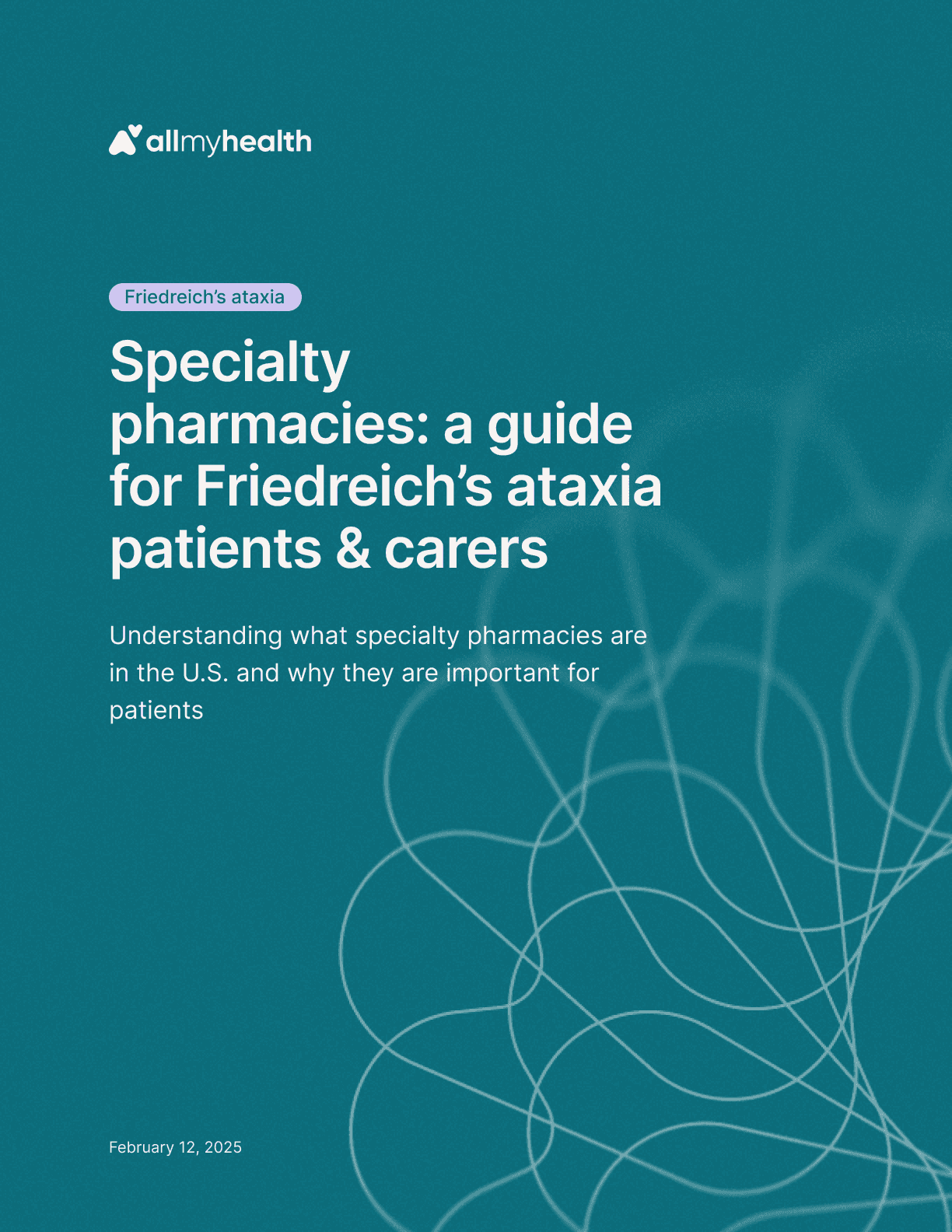
Friedreich's ataxia
·
Specialty pharmacies: a guide for Friedreich’s ataxia patients & carers
Feb 12, 2025
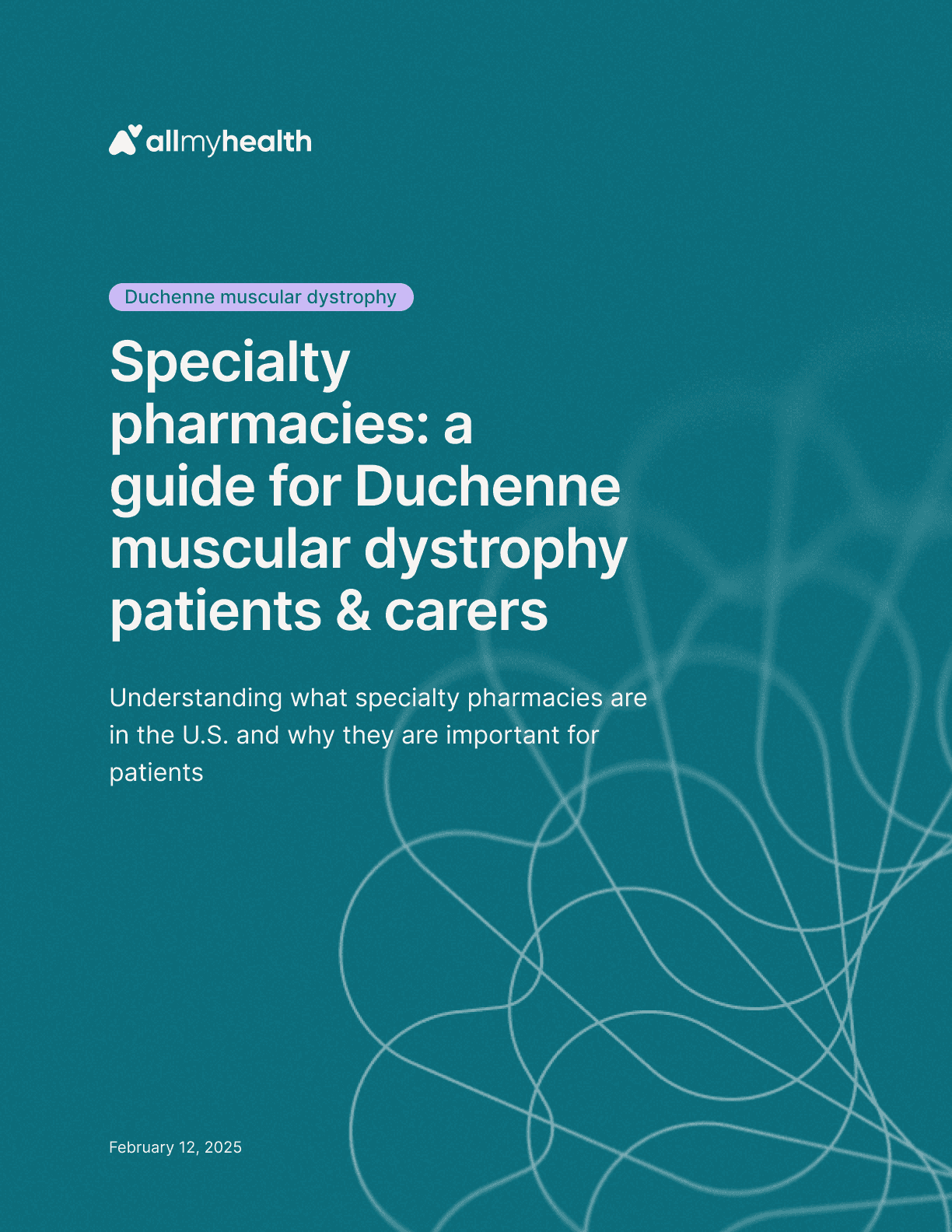
Duchenne muscular dystrophy
·
Specialty pharmacies: a guide for Duchenne muscular dystrophy patients & carers
Feb 12, 2025

Spinal muscular atrophy
·
Specialty pharmacies: a guide for SMA patients & carers
Feb 6, 2025
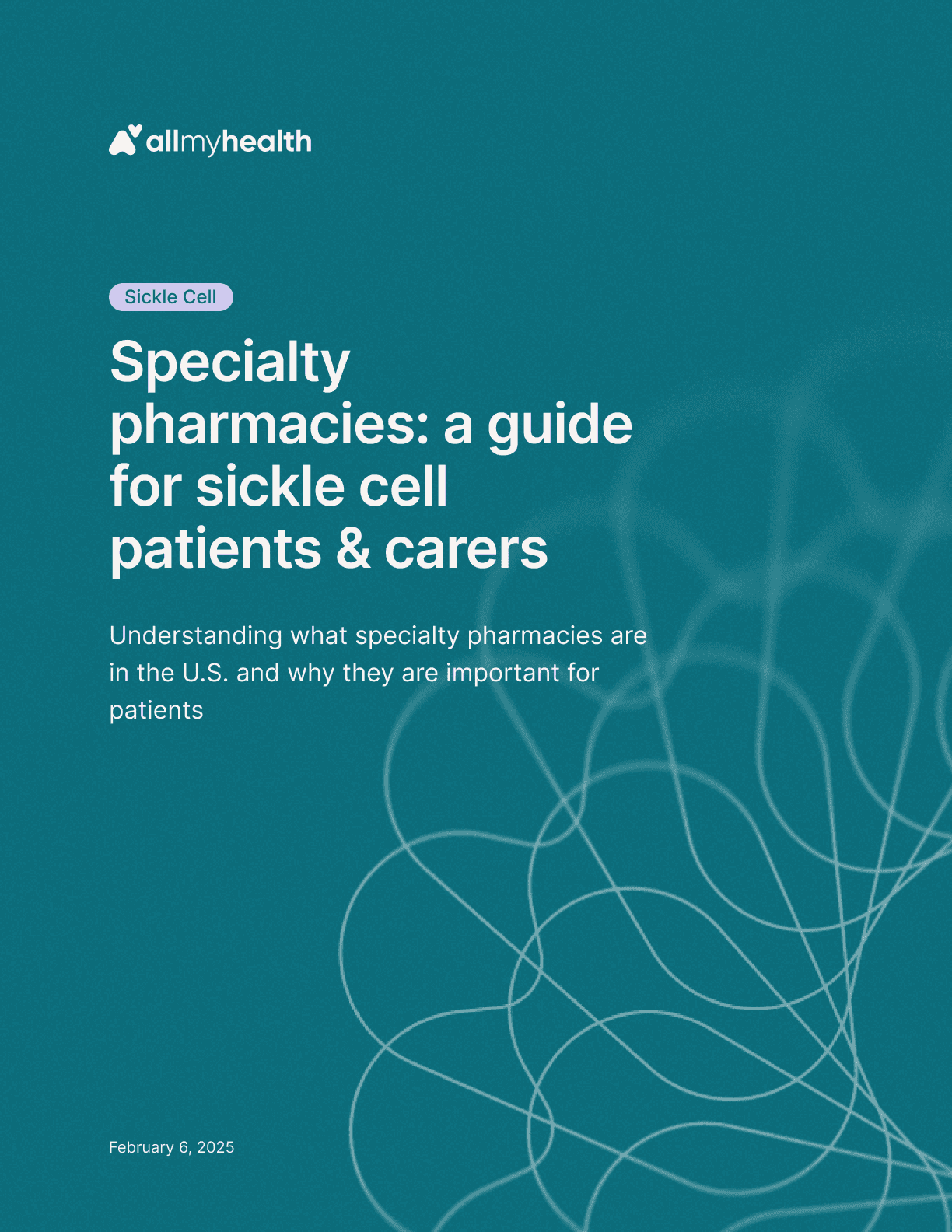
Sickle cell
·
Specialty pharmacies: a guide for sickle cell patients & carers
Feb 6, 2025
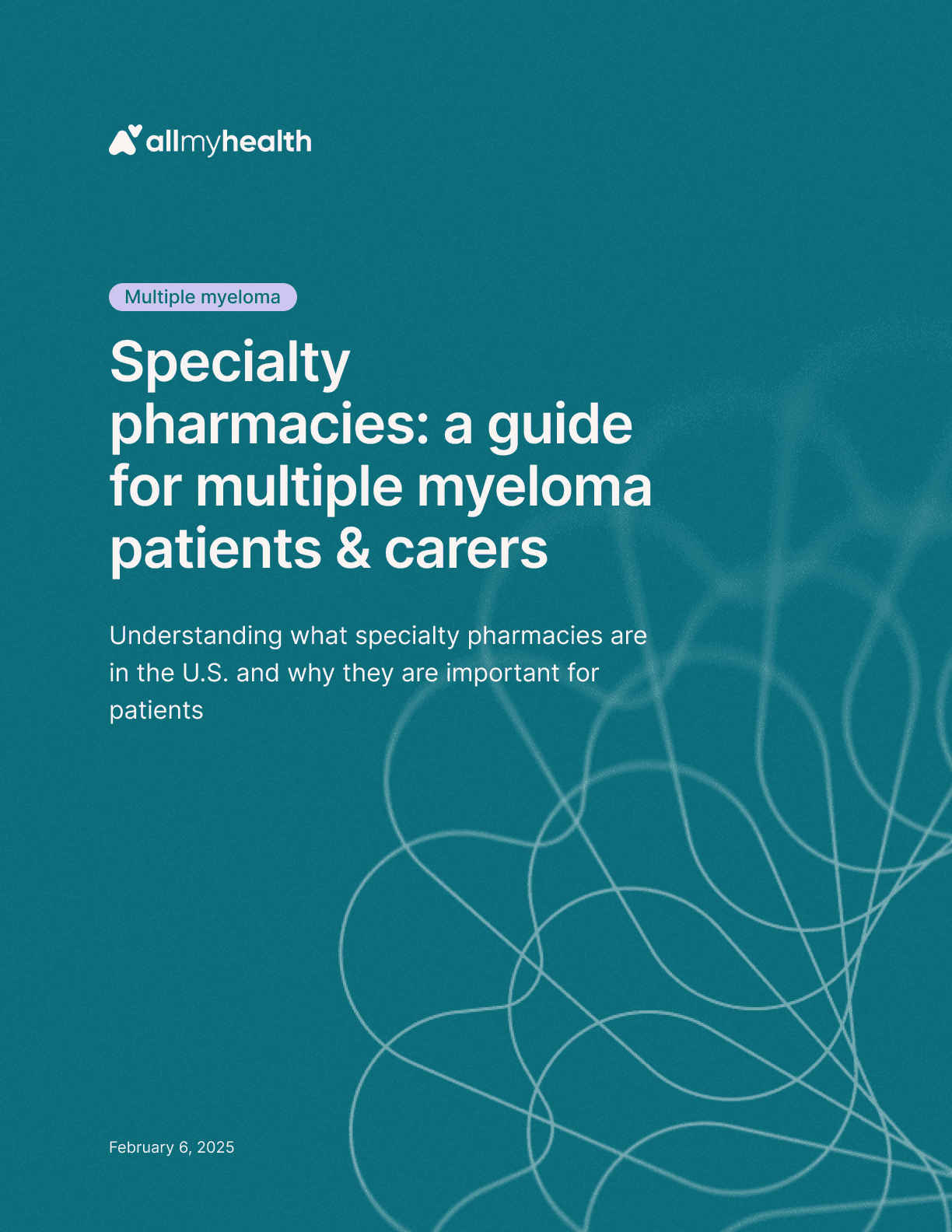
Multiple myeloma
·
Specialty pharmacies: a guide for multiple myeloma patients & carers
Feb 6, 2025
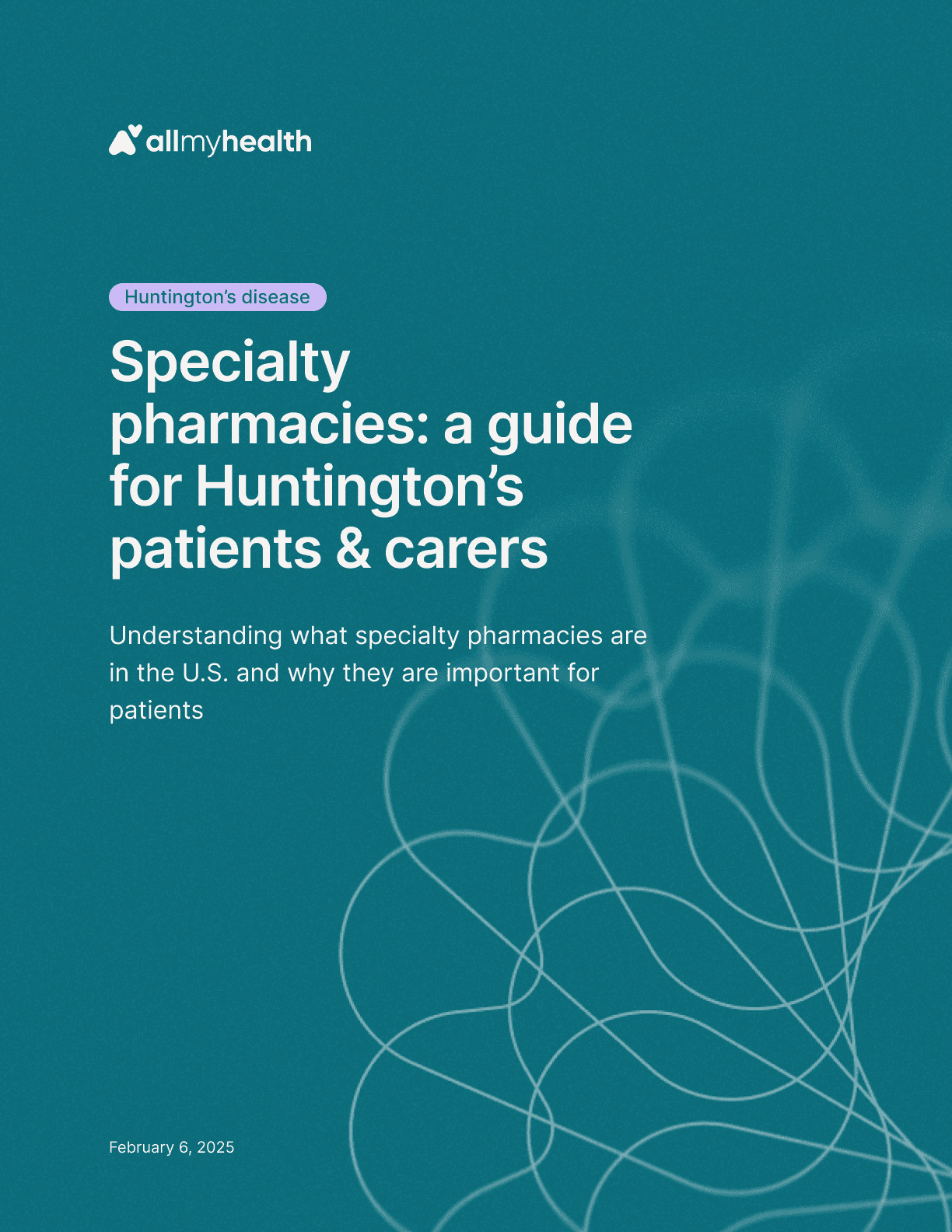
Huntington's disease
·
Specialty pharmacies: a guide for Huntington’s disease patients & carers
Feb 6, 2025
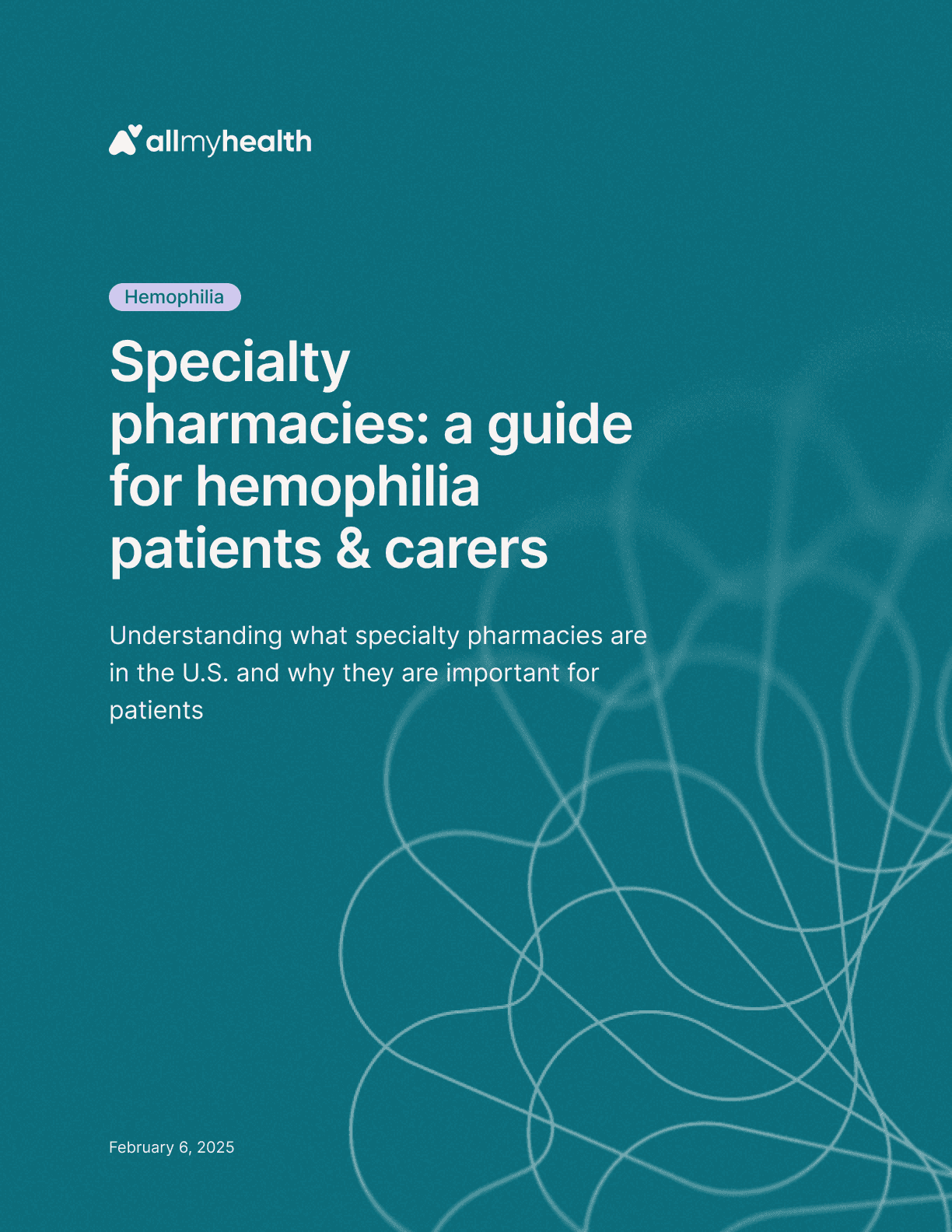
Hemophilia
·
Specialty pharmacies: a guide for hemophilia patients & carers
Feb 6, 2025

Amyotrophic lateral sclerosis
·
Specialty pharmacies: a guide for ALS patients & carers
Feb 6, 2025
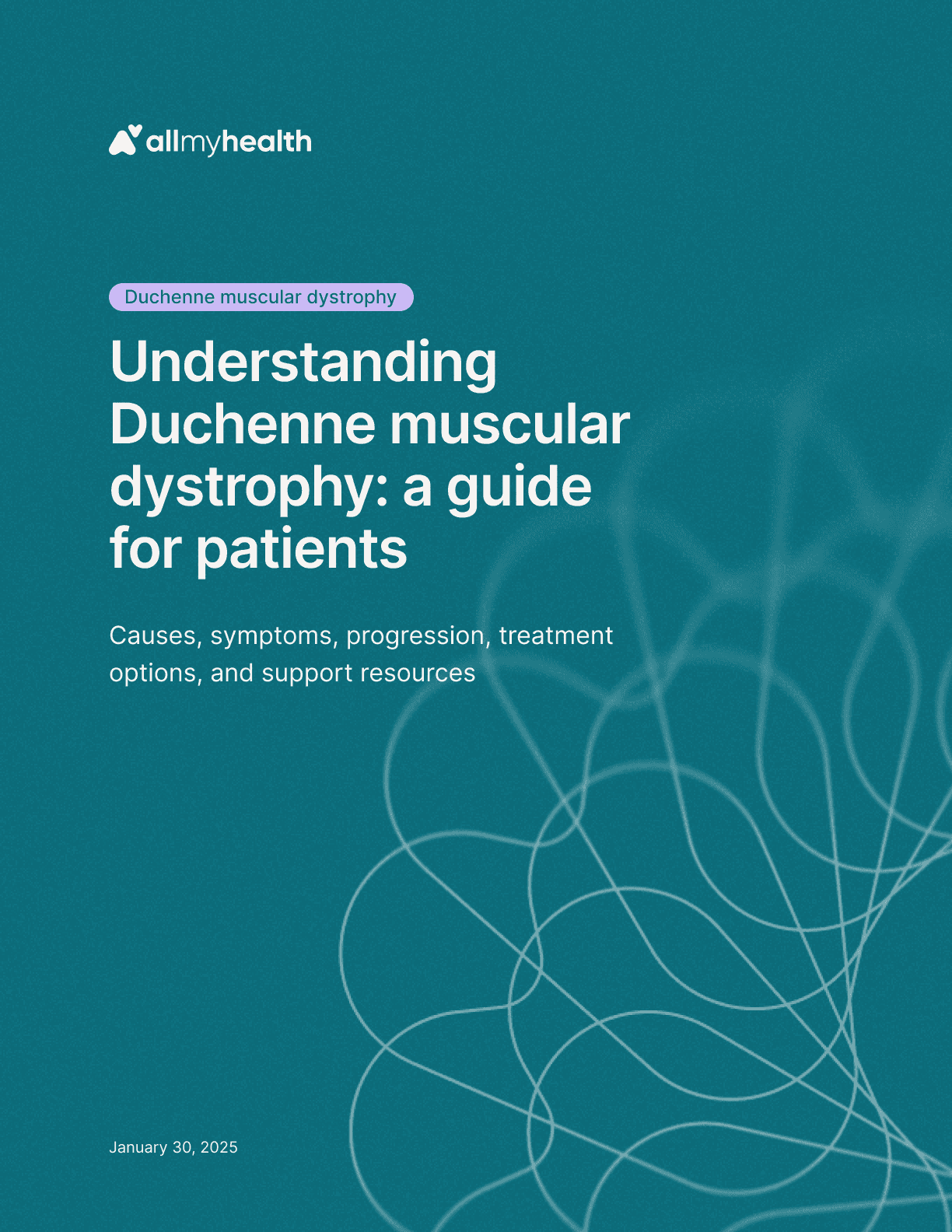
Duchenne muscular dystrophy
·
Understanding Duchenne muscular dystrophy: a guide for patients
Jan 30, 2025
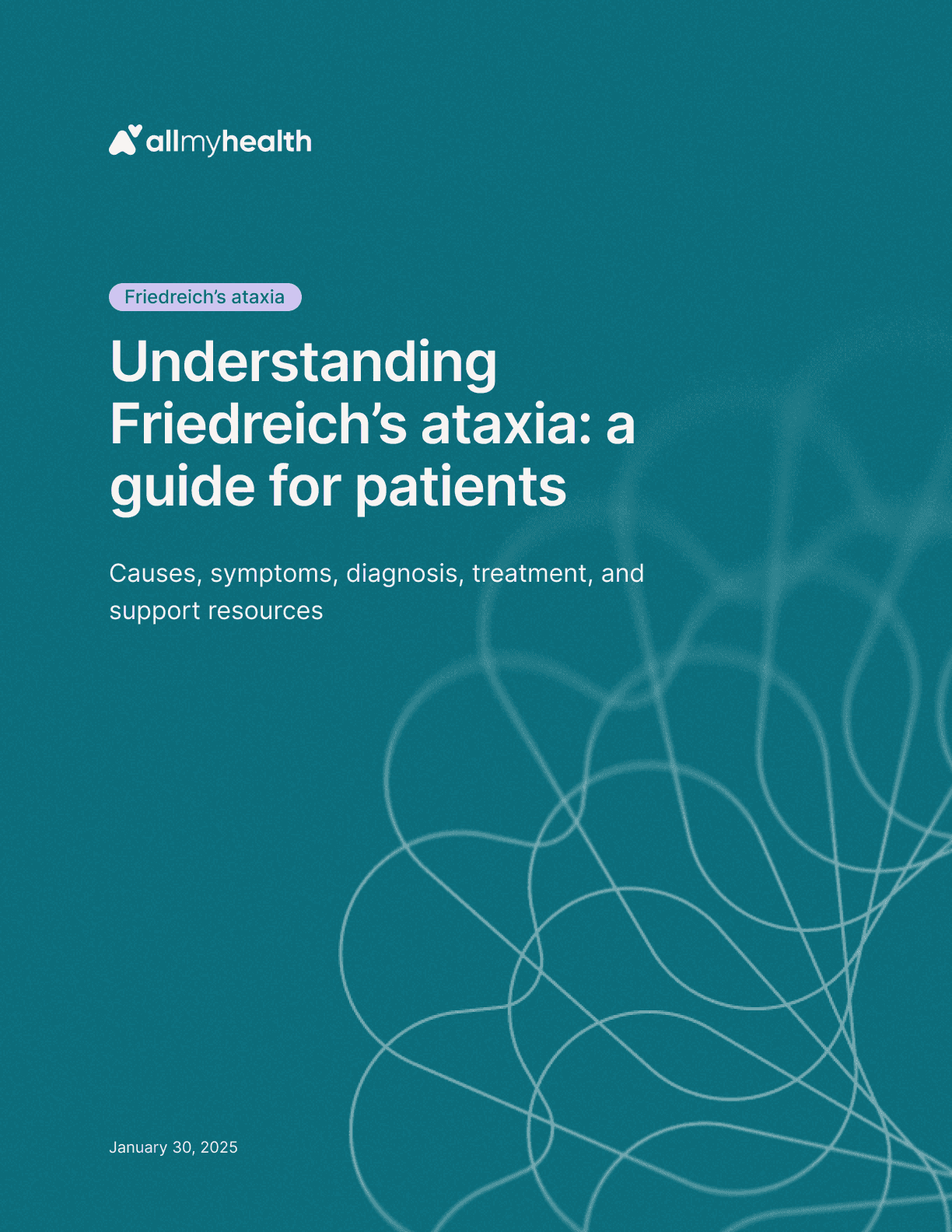
Friedreich's ataxia
·
Understanding Friedreich's ataxia: a guide for patients
Jan 30, 2025

Hemophilia
·
Understanding hemophilia: a guide for patients
Jan 30, 2025
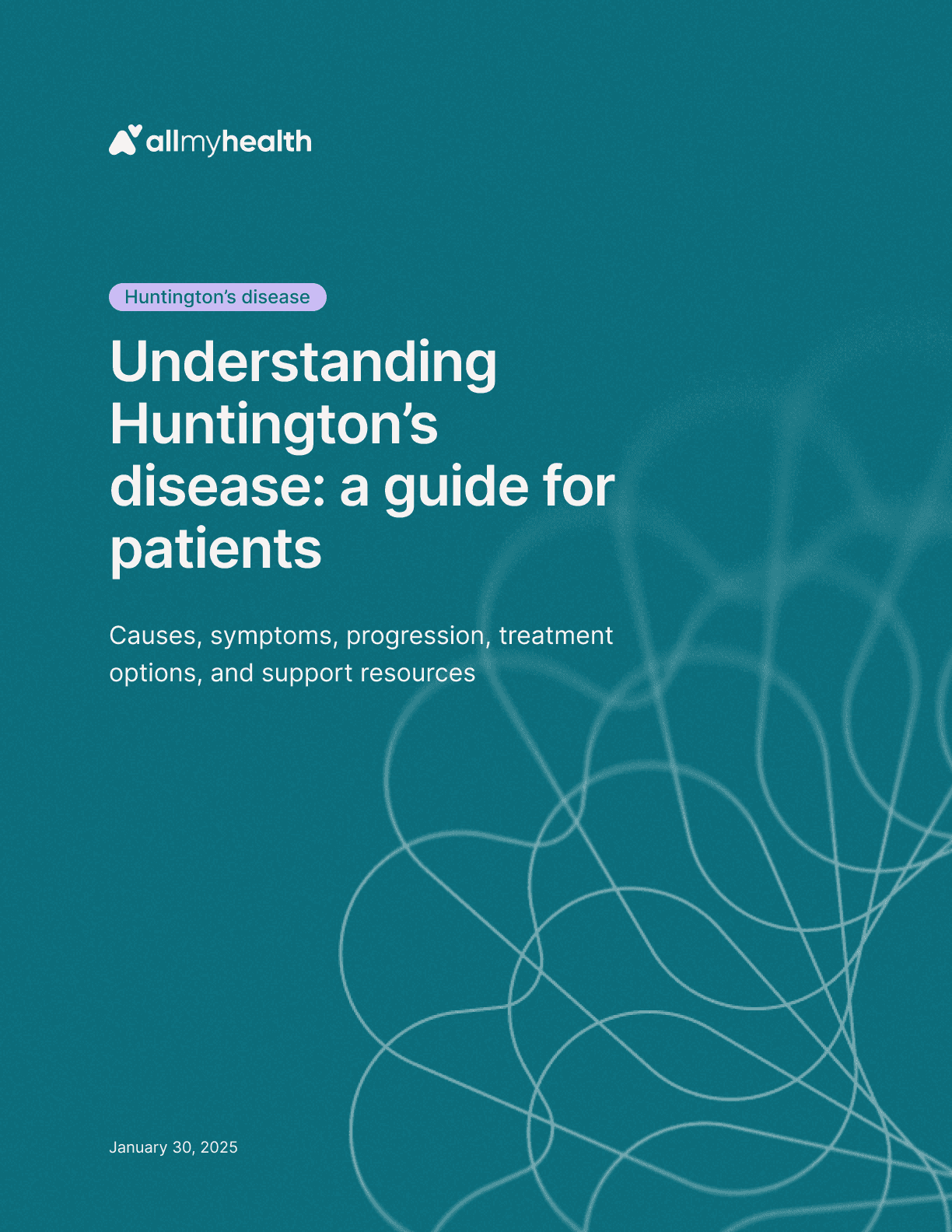
Huntington's disease
·
Understanding Huntington’s disease: a guide for patients
Jan 30, 2025
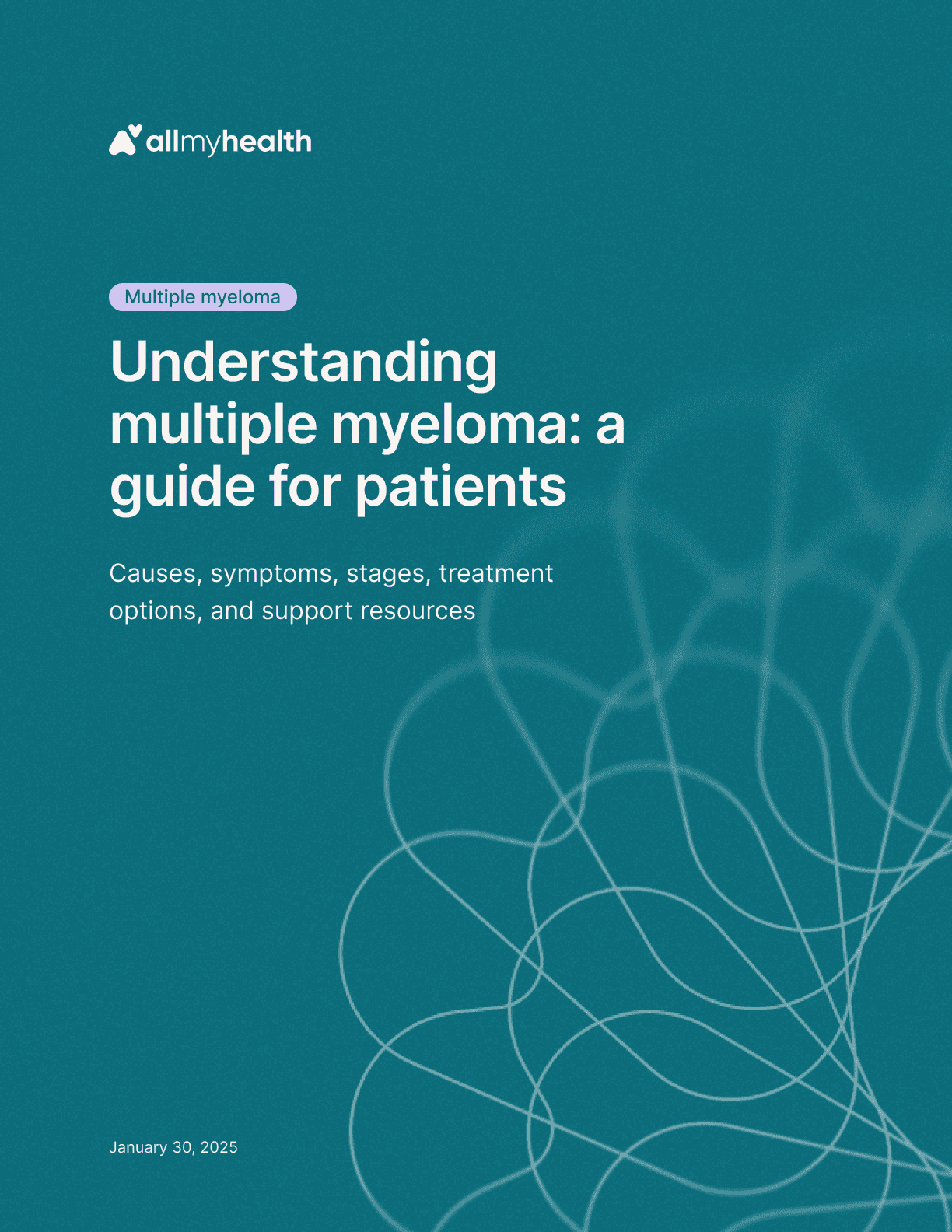
Multiple myeloma
·
Understanding multiple myeloma: a guide for patients
Jan 30, 2025

Primary biliary cholangitis
·
Understanding primary biliary cholangitis: a guide for patients
Jan 30, 2025
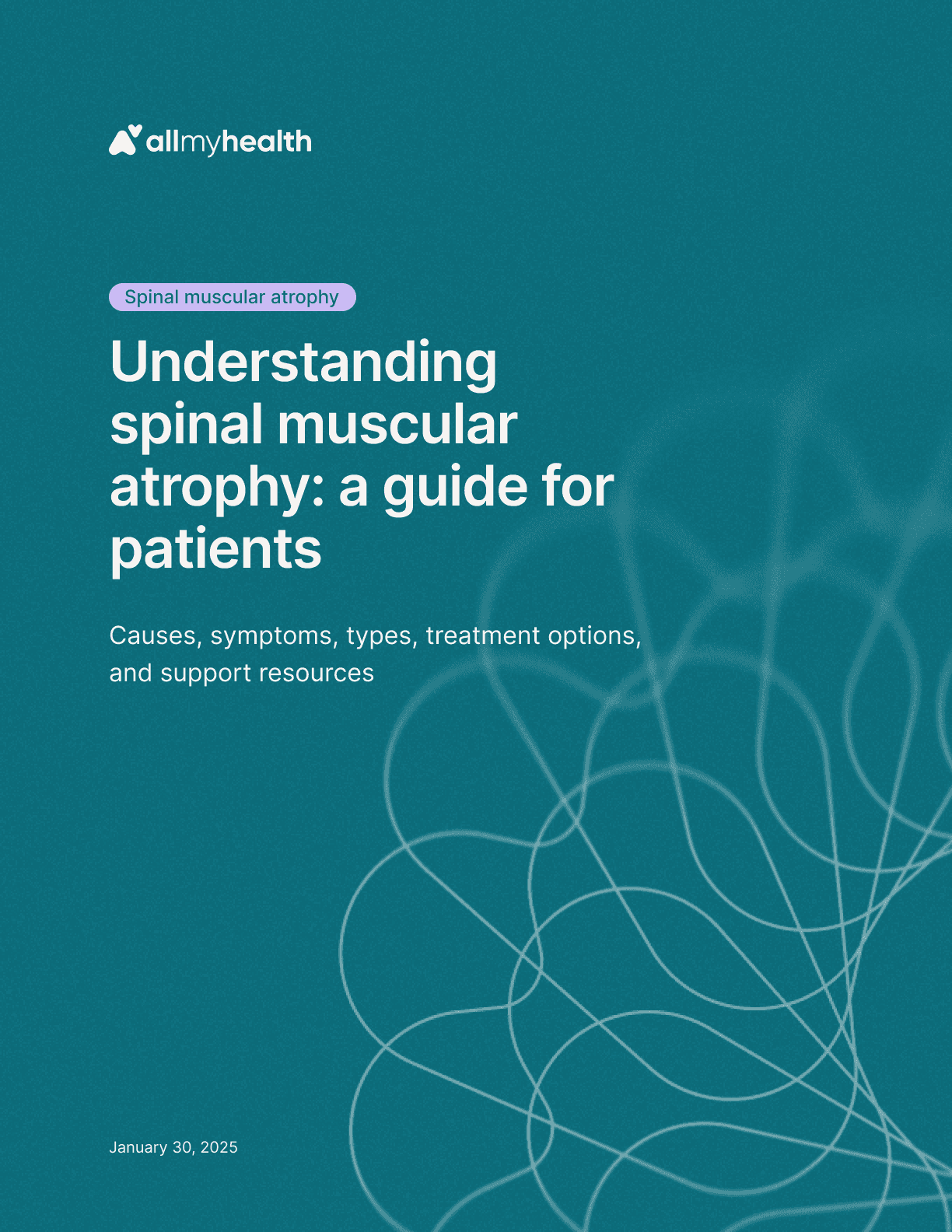
Spinal muscular atrophy
·
Understanding spinal muscular atrophy: a guide for patients
Jan 30, 2025

Amyotrophic lateral sclerosis
·
Understanding amyotrophic lateral sclerosis: a guide for patients
Jan 23, 2025
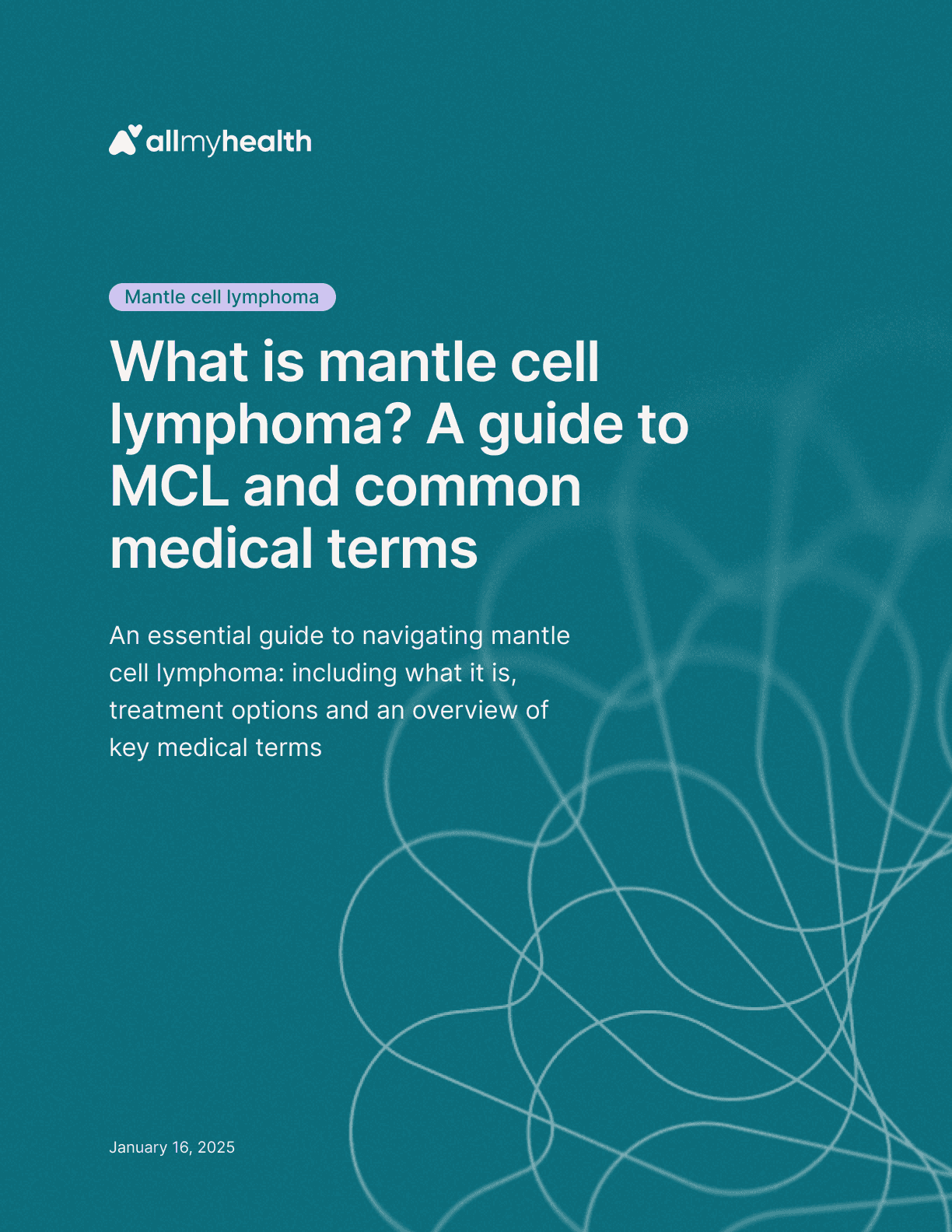
Mantle cell lymphoma
·
What is mantle cell lymphoma? A guide to MCL and common medical terms
Jan 23, 2025
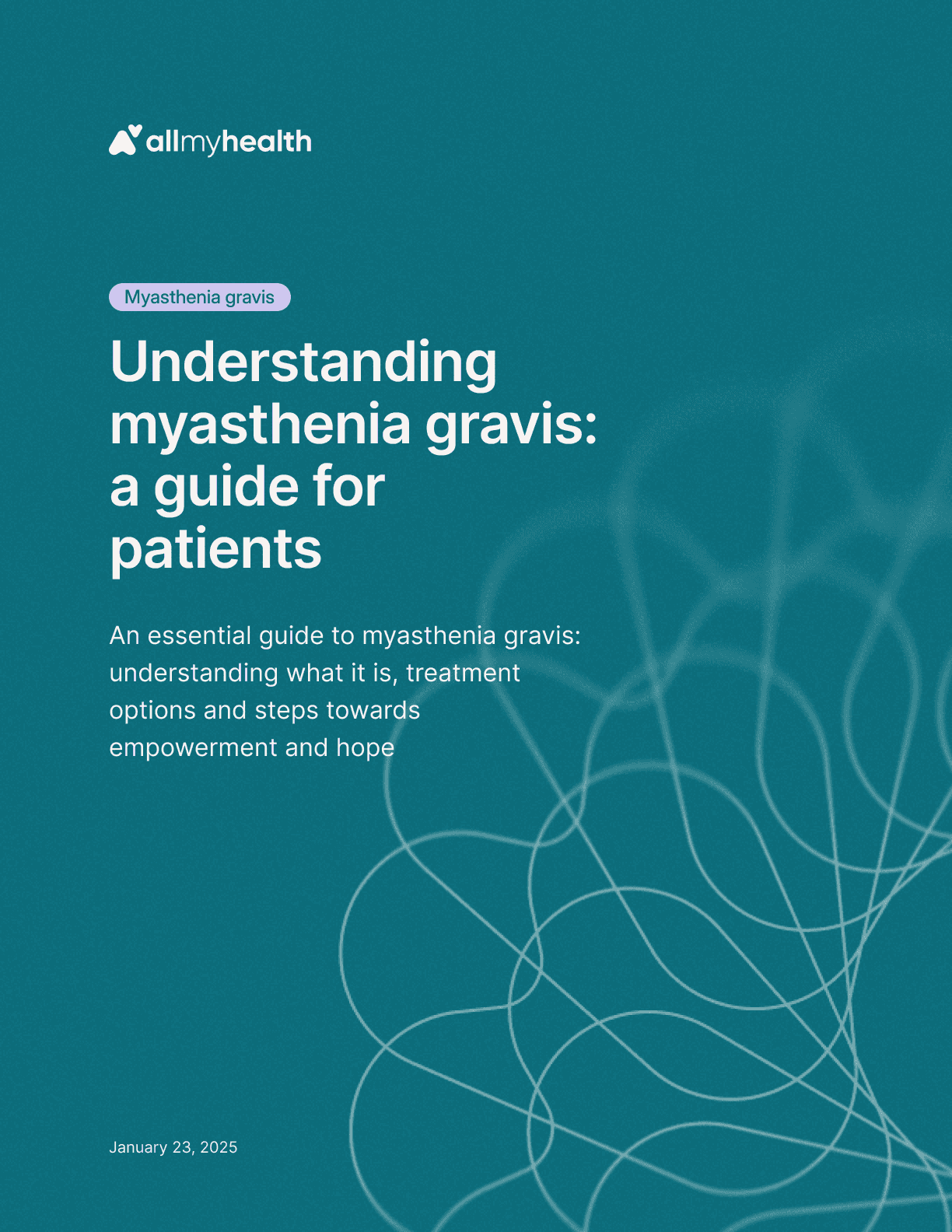
Myasthenia gravis
·
Understanding myasthenia gravis: a guide for patients
Jan 23, 2025
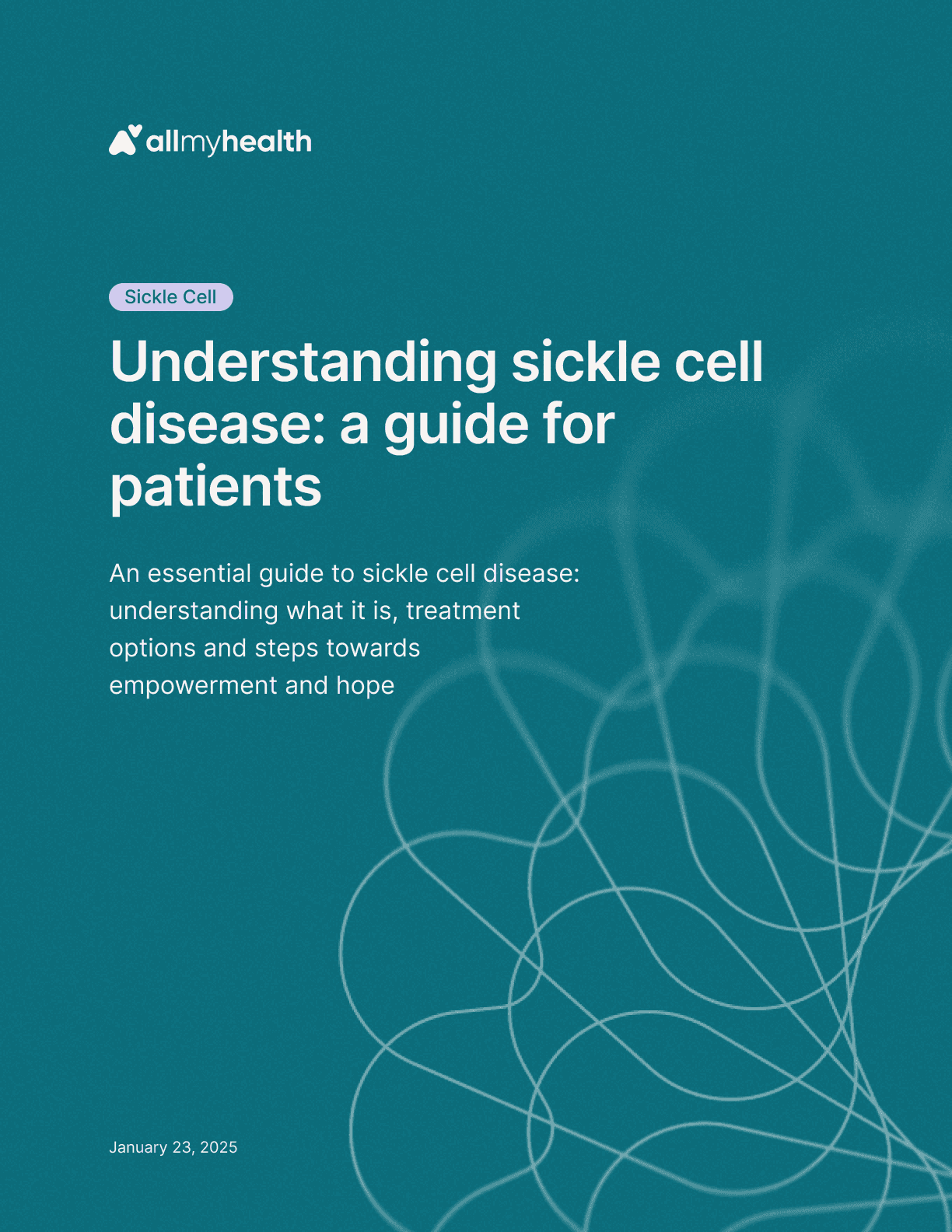
Sickle cell
·
Understanding sickle cell disease: a guide for patients
Jan 23, 2025
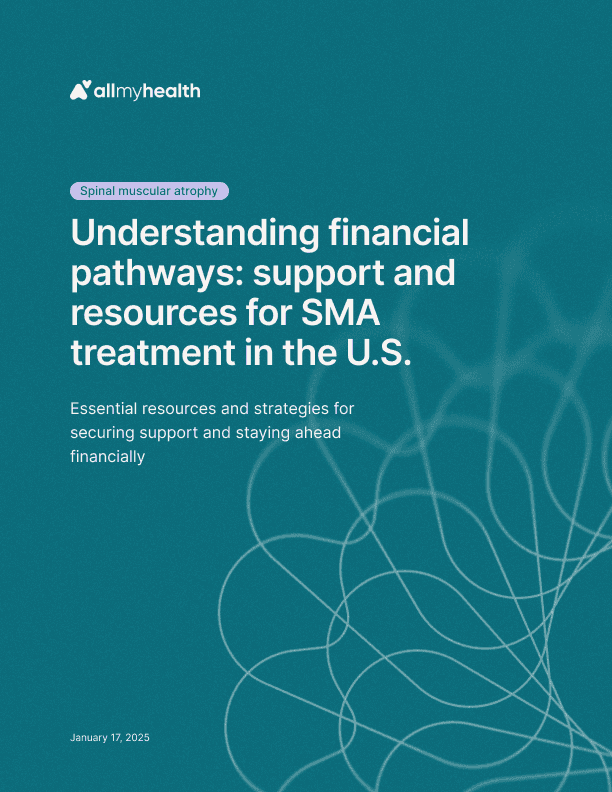
Spinal muscular atrophy
·
Understanding financial pathways: support and resources for SMA treatment in the U.S.
Jan 17, 2025
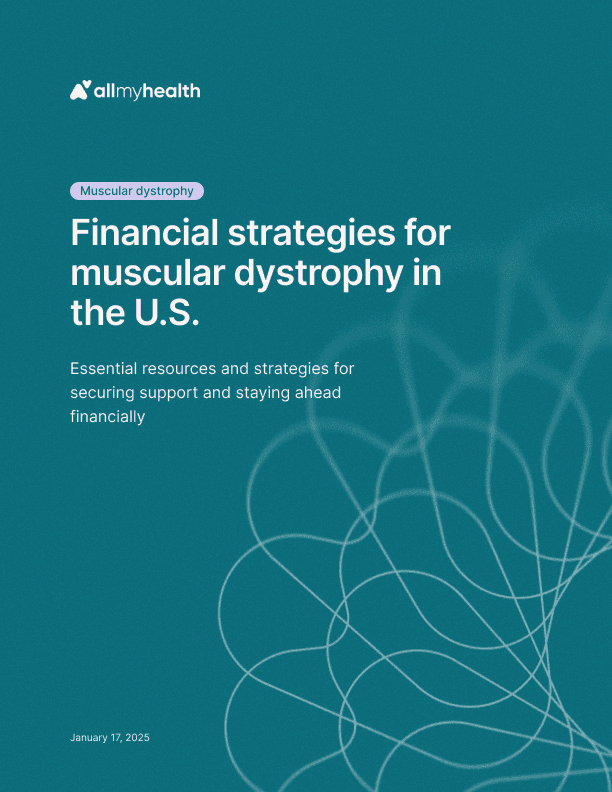
Duchenne muscular dystrophy
·
Financial strategies for muscular dystrophy in the U.S.
Jan 17, 2025

Hemophilia
·
Navigating financial assistance for hemophilia treatment in the U.S.
Jan 17, 2025
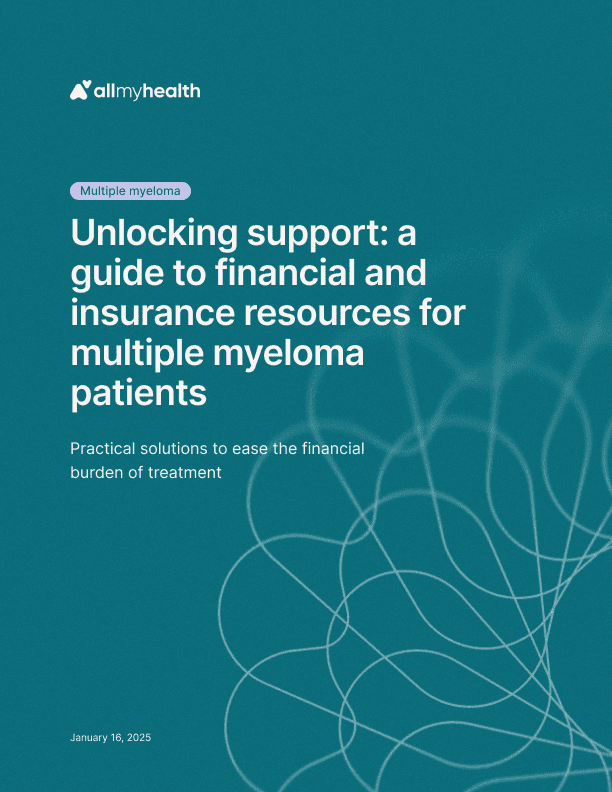
Multiple myeloma
·
Unlocking support: a guide to financial and insurance resources for multiple myeloma patients
Jan 17, 2025

Friedreich's ataxia
·
Navigating Friedreich’s ataxia in the U.S.: a practical guide to support and financial planning
Jan 17, 2025
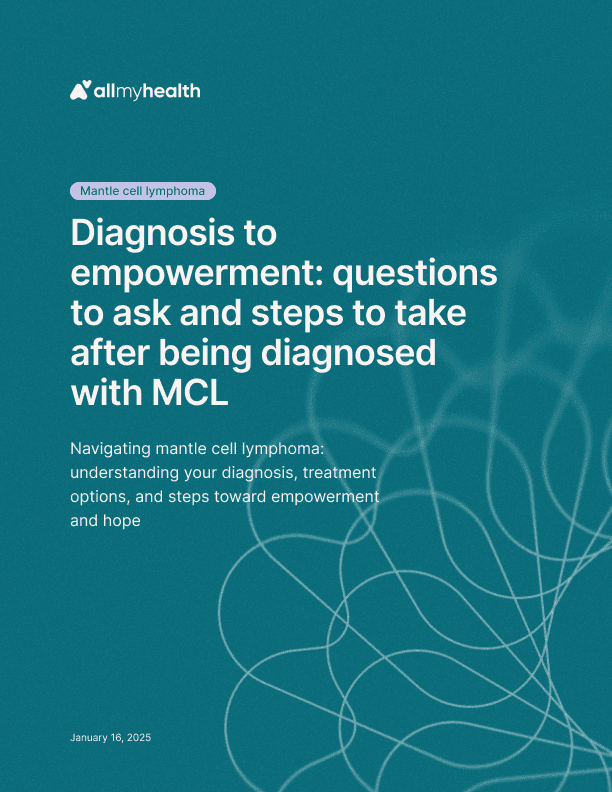
Mantle cell lymphoma
·
Diagnosis to empowerment: questions to ask and steps to take after being diagnosed with MCL
Jan 16, 2025
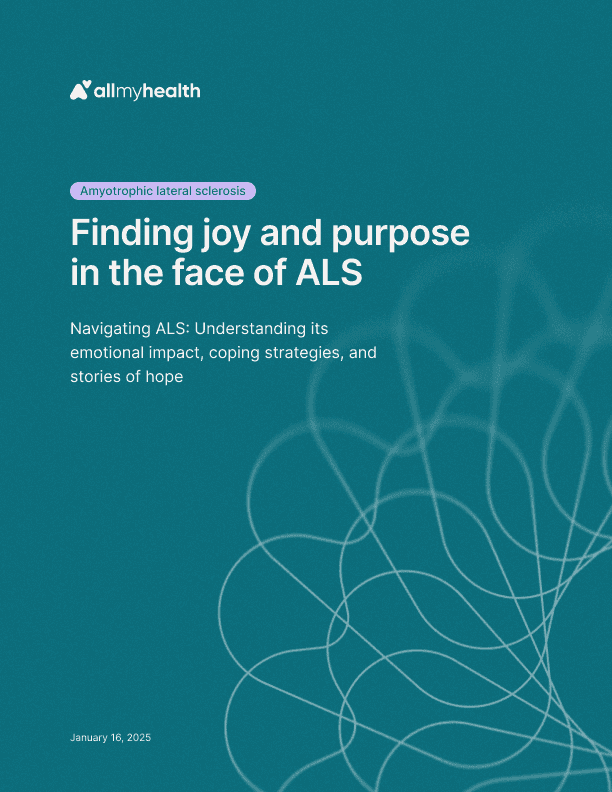
Amyotrophic lateral sclerosis
·
Finding joy and purpose in the face of ALS
Jan 16, 2025
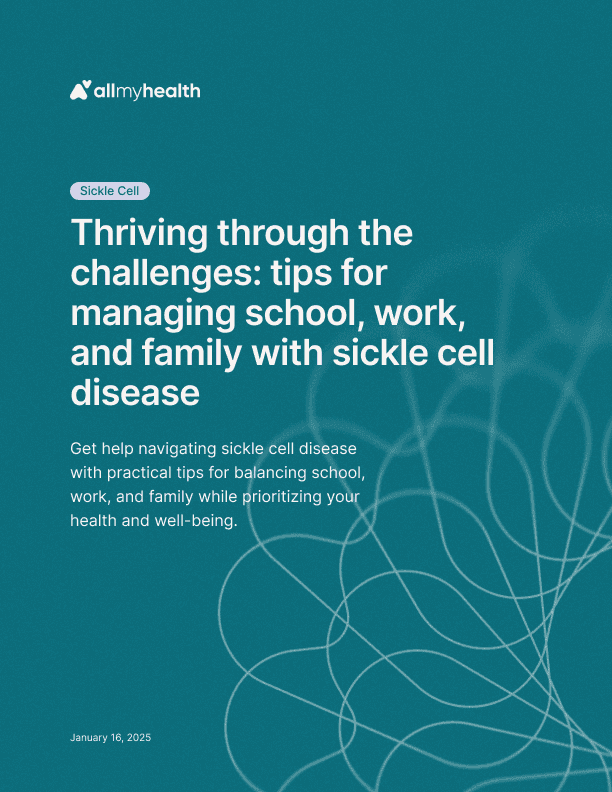
Sickle cell
·
Thriving through the challenges: tips for managing school, work, and family with sickle cell disease
Jan 16, 2025
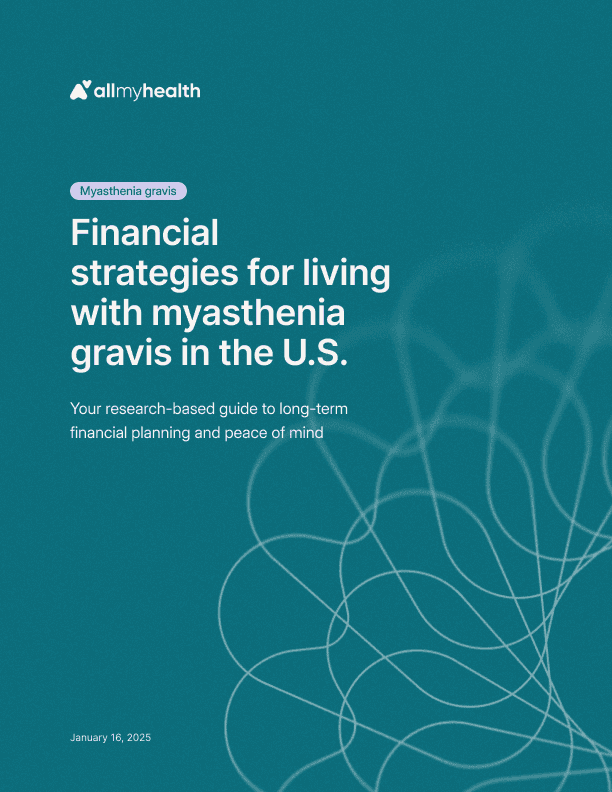
Myasthenia gravis
·
Financial strategies for living with myasthenia gravis in the U.S.: a guide to long-term planning
Jan 16, 2025